Your Discipleship Survival Kit
Much Can Happen in 30 Days
Getting Old Is Not for Sissies!
Jesus, Our Passover Lamb Discipleship Starts With Prayer Complete Honesty
Why Am I Doing This?


Your Discipleship Survival Kit
Much Can Happen in 30 Days
Getting Old Is Not for Sissies!
Jesus, Our Passover Lamb Discipleship Starts With Prayer Complete Honesty
Why Am I Doing This?

This summer, enjoy a beautiful, limited-edition volume from the Historical Commission, published in cooperation with the Executive Office. At the Feet of Jesus is a 365-day devotional book drawn from the lifetime writings of Dr. Mary Ruth Wisehart. Each da y, encounter her unique perspective on faith and life drawn from the Word of God.
Funded in part by a grant from the Free Will Baptist Foundation, supplies are limited. Make plans now to purchase your copy at the National Convention in Kansas City.

While time machines don't exist in real life, you can still make an impact on the future through either a unitrust or gift annuity through the Free Will Baptist Foundation. Earn competitive rates of return on investments while changing the future of ministry. Call the Foundation for current rates:




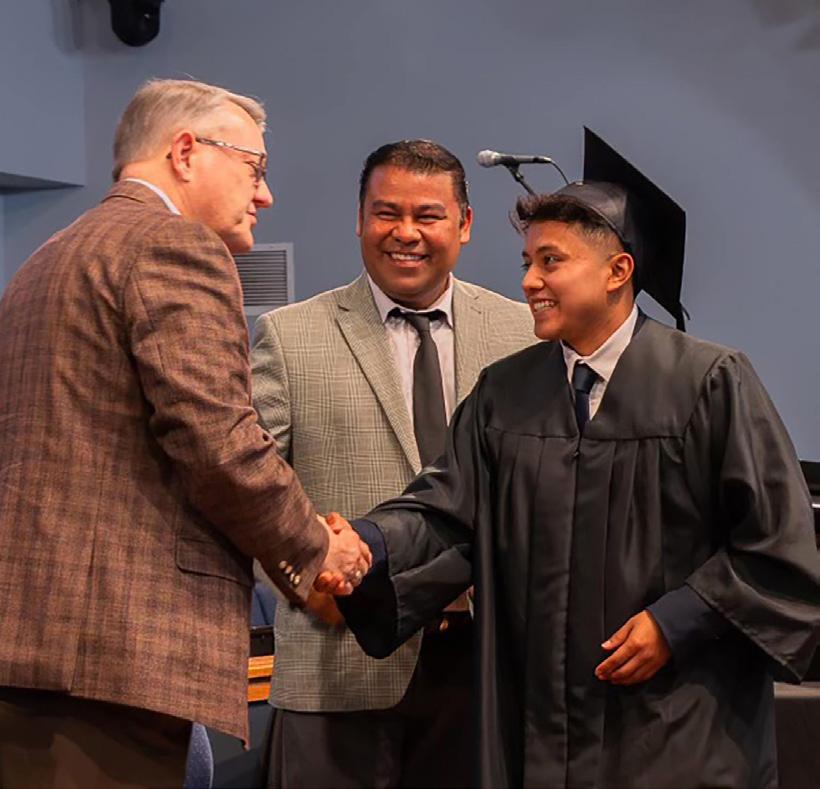
BY ERIC K. THOMSEN
My heart seems to skip a beat as I look down at the tiny bundle in my arms. Caisson James Matlock — seven pounds, three ounces, and twenty inches of first grandchild perfection.
A tiny hand slips from beneath the swaddling and grips my index finger. I swallow hard and glance around quickly to make sure no one sees the enormous tear winding its way slowly down my cheek.
It’s going to be hard not to spoil this little guy.

I chuckle to catch myself pondering the same questions I have heard from so many other new grandparents: Is that my daughter’s button nose? My grandfather’s huckleberry blue eyes? His dad’s mouth? My out-of-control cowlick above his forehead? (I shake my head at that last one. He’s going to need a lot of spray gel.)
The thought pops unbidden into my head, and I beam down at this tiny new human who has no idea just how much he is
But then a still, small voice whispers into my soul. “No, he’s not.”
For a moment, my mind rebels. “What? Not perfect? Just look at him!”
Then I remember. Along with all the other traits inherited
from his family, Caisson was born with a sinful nature. As beautiful as my new grandson might be, his soul is broken. He needs a Savior.
That’s where we come in — parents; grandparents; great-grandparents; aunt, uncle, and cousins; church family; the entire Free Will Baptist family. Caisson needs all of us to point him to the One who really is perfect, the One who gave His life so Caisson can be whole.
The weight of this enormous responsibility settles heavily upon me for a moment, but then another quiet whisper reminds me we are not alone in the task. The Holy Spirit takes our simple words about the Savior and gives them power — His power, not ours — bearing witness to the Truth and drawing hearts to Him (John 15:26; 16:13–14). Drawing Caisson to Him.
A strange snort brings my attention back to the child in my arms, and I chuckle. One thing is certain: my grandson definitely has my snore!
“And these words, which I command thee this day, shall be in thine heart: And thou shalt teach them diligently unto thy children” (Deuteronomy 6:6–7).
About the Columnist: Eric K. Thomsen is managing editor of ONE Magazine. Email: eric@nafwb.org.


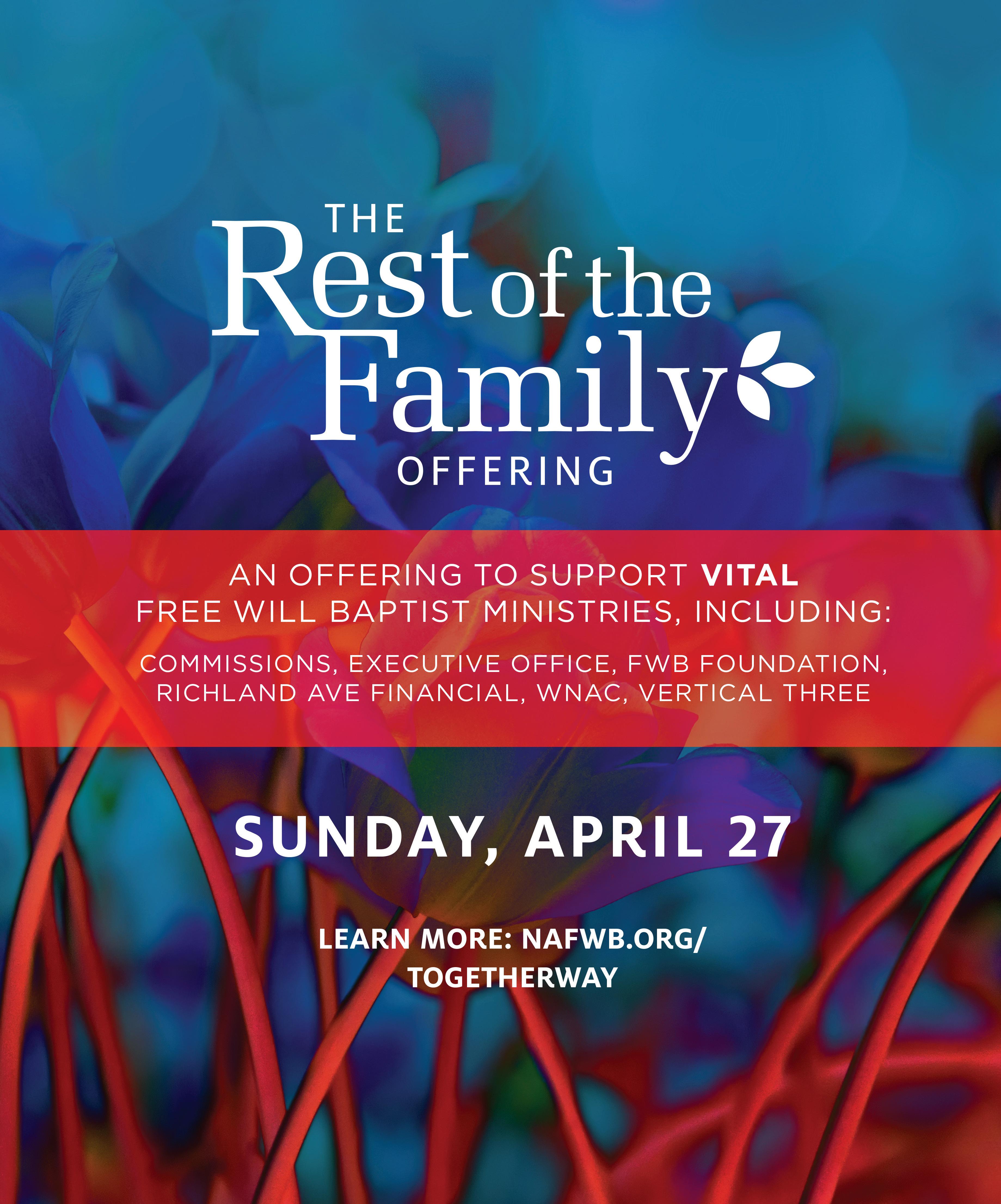
BY RON HUNTER JR., PH.D.
We have all participated in icebreaker games, like imagining which item you’d take to a deserted island. But let’s flip the question: if someone you love were to journey through life’s challenges, what three items would you pack for them to survive and thrive?
Preparing for a deserted island with a Swiss army knife or fishing net takes only a moment of thought and packing. Preparing for life’s uncertainties — losing a job, loved one, or financial stability — requires much more. Life’s challenges will come, and in our own strength, we often cannot endure. The question isn’t if we will face hardship, but how we’ll navigate it.
When preparing children for adulthood, most parents think of love, security, or education — all important. But what if the most vital tools to help face life went deeper? Imagine shaping your child’s soul, building their character, and preparing them to stand firm in a shifting world. If you could pack three essential tools for your child, grandchild, or even yourself, what would they be? Let’s explore these three indispensable tools and why they matter.

The first and most essential item to pack is a genuine relationship with Christ. When Jesus called Peter, John, Andrew, and the other disciples, He invited them into a life of discipleship. For enduring faith, no other priority can stand above Christ — not career, wealth, or relationships. Discipleship is rooted in discipline. How do soldiers prepare for battle? The military’s priority in basic training is to instill discipline, and the deeper it runs, the higher its capacity to fight off the enemy or face difficult odds.
A Christian’s discipline is cultivating spiritual habits to stand firm in faith. God calls us not to display flashy armor but to

wear it daily and master its use. From daily Bible reading to living out our faith, these disciplines begin early. We teach children to brush their teeth, but do we teach them to engage with God’s Word? Have we provided them with a Bible they can understand, or have we unintentionally created barriers that discourage them? Barna reports 42% of teens admit to never reading the Bible.1 Have we contributed to that negative stat?
D6 Family Ministry equips churches and homes to foster discipleship across generations. We all want to raise modern-day Daniels and Esthers — people who stand firm when it matters most. But Daniel’s resolve wasn’t spontaneous; it was nurtured through discipleship long before he faced his trials. Likewise, today’s worldviews aren’t shaped by Sunday mornings alone.
Everyday moments at home are crucial. The D6 curriculum and devotional study guides bridge this gap, but using both curriculum and magazines is very different from the way most church leaders were raised. By ignoring the home, has what we’ve done — then or now — truly worked? Six out of ten teenagers end up prodigals today. Would you like to change those odds? Let’s return to Christ’s first call: “Be my disciples.”
The second tool to pack is resilience. As teachers and parents, we all recognize kids value what we value and respect what we respect. Yet, in our efforts to make life easier, we often shield them from difficulty. Resilience grows when children learn to handle challenges, starting with small tasks like clearing their plates, and progressing to greater responsibilities as they mature.2
Resilience, as Boan and Ayers describe, is the ability to “‘absorb’ the stress from an external force without losing its integrity or changing its internal properties, [yet] it can return to its original condition without long-term harm.”3 It’s more than bouncing back; it’s standing firm under pressure, peer or circumstantial. Christ modeled resilience for His disciples, teaching them to face trials through prayer and reliance on God. How have you modeled resilience for the kids in your life? Do they sit by and watch others work and do hard things, or do they jump in and offer help? Do they see you avoid hardship, or do they see you lean on Christ through challenges?
Building resilience early helps children understand suffering’s role in developing perseverance. Fusion Family magazine equips parents to share stories of God’s faithfulness and guide children through life’s difficulties. D6 helps each
1 https://barna.gloo.us/reports/open-generation-vol-2
2 https://www.thegospelcoalition.org/article/teaching-kids-work-grace-grit/
3 Boan and Ayers. Creating Shared Resilience: The Role of the Church in a Hopeful Future. Langham Global Library: Carlisle, Cumbria, UK, 2020, 9.

for Every Age and Stage
First Steps for a teaching nursery
Cuddle Time
Bible Storybook for preschool
Adventure Guide for early elementary Explorer’s Guide for upper elementary Velocity for young teens
Forward for high school students
The Brink for young adults without kids
Fusion Family for adults with kids in the home
Fusion Next for older adults & empty nesters
Teaching guides for each age group keep the family aligned on biblical themes and promote generational discipleship at church and home. For detailed information, go to d6family.com/d6curriculum


generation find their identity in Christ by acknowledging how suffering and unfairness play a role in building perseverance as a Christian. Resilience allows us to trust God and press forward even in life’s hardest moments.
Finally, the third essential gift is mentorship. If I were stranded on an island or facing life’s uncertainties, I’d want a mentor walking beside me. Throughout my life, mentors have guided me as a parent, husband, leader, and Christ-follower. Each has helped me navigate challenges, grow spiritually, and discern God’s direction.
Mentoring involves more than lessons or lectures. True mentors listen, relate, and guide. They share personal stories paired with Scripture, offering encouragement, wisdom, and presence. D6, inspired by Deuteronomy 6, emphasizes generational mentoring as an integral part of everyday life. Mentors leave lasting impressions without duplicating themselves. Instead, they help shape individuals into stronger Christ-followers.
Parents, teachers, and older adults in the church can mentor.
Remember, kids are watching and taking their cues from you.4 Churches that provide D6 curriculum and devotional study guides create a culture of intentional mentorship where all ages grow together in God’s Word. This approach builds resilience and fosters discipleship, equipping families to thrive.
Christ modeled resilience for His disciples, teaching them to face trials through prayer and reliance on God.
As you prepare for life’s challenges, remember these three essential gifts: a deep relationship with God, resilience to endure, and mentors to guide the way. These legacy gifts shape character, strengthen faith, and equip us to stand firm in a shifting world. If every generation embraced the call to pass along these three gifts, imagine the difference in the future church and home.
About the Writer: Ron Hunter Jr., Ph.D. is the CEO of D6 Family Ministry. Learn more: d6family.com.
4 https://www.thegospelcoalition.org/article/help-teens-own-faith/
If you don't know what to do with old associational minutes, church records, magazines, or other historical information, don't just throw them away. The Historical Commission will gladly take them off your hands, sort them, and add missing items to the denominational historical collection. To donate, contact collection curator Phillip Morgan: pmorgan@welch.edu.

BY RON HUNTER JR., PH.D.
Henry Ford said, “Coming together is a beginning. Keeping together is progress. Working together is a success. Period.” People love simple tools that boost productivity and morale but also provide successful, quality results.
How often has a team member or volunteer poured tons of effort into a project, only for it to fall short of your expectations? Or worse, they invite others to participate without consulting you, creating tasks or commitments that make changing course embarrassing for everyone involved. They are fully invested at that point, and criticism can feel like a personal blow.
To keep you on the same path, the 20/60/20 rule provides a straightforward approach to launch initiatives and events like youth camps, Christmas programs, or Easter celebrations. Here’s how it works:
• First 20%: Before any work begins, the team member presents ideas for your input or approval. This collaboration ensures alignment from the start.

MAY/JUN 2025 BLOCK
• Next 60%: They execute the plan independently, sticking to the agreed vision.
• Final 20%: Before finalizing everything, you meet again for a final review, tweaking as needed. Changes are minimal since you are both already aligned on the big picture.
This approach keeps everyone “rowing in the same direction” and minimizes frustration. Try it for smoother teamwork and better results.
About the Columnist: Ron Hunter Jr. has a Ph.D. in leadership and is CEO of D6 Family Ministry. You may contact him at ron.hunter@d6family.com.
“Teamwork is the ability to work together toward a common vision. It is the fuel that allows common people to attain uncommon results.”
—Andrew Carnegie
Featured Books: Ephesians, Psalms
Special Topic: Navigating Social Media and Screen Time

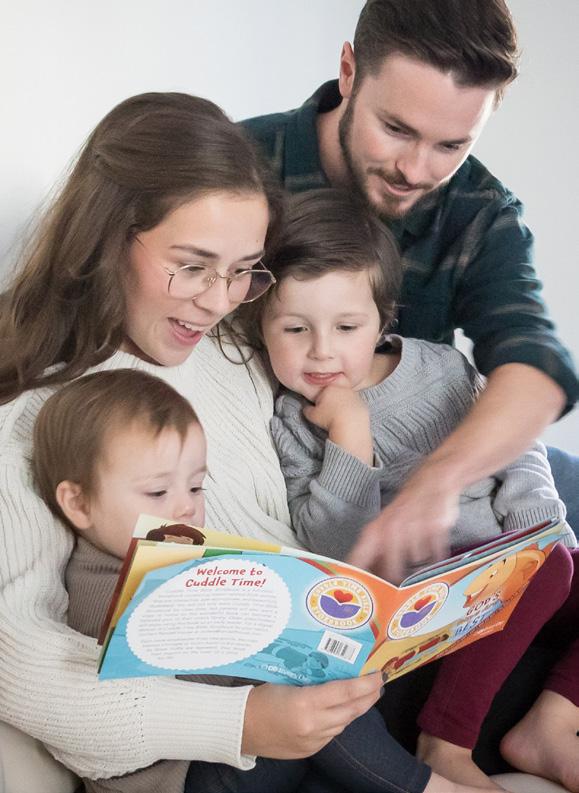

Relationships are central to making a spiritual impact on children. Teenagers tend to embrace their parents’ faith if parents have heart connections (relationships) with them. If a parent and teenager grow distant from each other, the parent will probably have little spiritual impact, even if the parent teaches biblical truth.
BY RICHARD ROSS
Drawing from more than 230 in-depth interviews, Dr. Christian Smith observes: “Parents can be very invested in and intentional about religious transmission, but if they have emotionally distant or critical relationships with their children, their efforts are likely to fail or backfire.”1
Teenagers want genuine relationships with parents. Parents who want warm relationships with their children throughout adolescence need to know their children likely want the same thing.
God desires to turn the hearts of parents to their children and the hearts of children to their parents (Malachi 4:6). Teenagers tend to share strong heart connections with parents who communicate their significance and frequently provide words of encouragement (Ephesians 4:29).
Parents willing to improve relationships must consider several key issues:
1. Teenagers sometimes need a parent’s undivided attention.
2. Teenagers need a listening ear that does not interrupt.
3. Parents and teenagers need to forgive each other for the injuries they have caused.
4. Parents and teenagers need to hear words that bless, encourage, and build up.
Biblical counselors and family life leaders have known for some time what experiences have the most potential for rebuilding warmth. The key has been placing all those rich insights in the hands of parents and teenagers. Dr. Gus Reyes and I spent months synthesizing the best we know about relationships and then putting that in a usable format for families.
Families now have a simple yet powerful tool to assist in restoring relationships — the phone app named 30 Days: Parents and Teens. The use of the app has proven the hearts of parents and teenagers can be turned toward each other in 30 days.
Previously published in booklet form, thousands of parents and teens recaptured a closer connection with each other,
1 Smith, Christian and Amy Adamczyk, Handing Down the Faith: How Parents Pass Their Religion on to the Next Generation (Oxford Press, 2021), 5.
often restoring strained relationships. When 30 Days was published as a booklet, tens of thousands of families gladly paid roughly $20 for the experience. But by moving to a phone app, the cost now is below $3. A side benefit is teenagers think using their phones to connect with a parent is cool.
1. The app is available in English and Spanish.
2. To download the app for both Apple and Android devices, go to https://store.randallhouse.com/30-days-app/
3. To experience 30 Days, one parent and one teenager commit to spending ten minutes together each evening for thirty evenings.
4. The parent and teenager go to a quiet room and pull chairs near each other.
5. They open the 30 Days app for that night and then see the instructions for that session. Some are for the teenager, and some are for the parent.
6. By following the instructions in the app, the parent and teenager say and do those things that have the most potential to turn their hearts toward each other.
7. Some evenings are marked by laughter and some by tears. Some words bring blessing and affirmation, and some bring forgiveness and healing.
Strong families report this process has taken their relationships to the next level. Struggling families report relationships have been restored. Best of all, when the heart connection is restored, then teaching and modeling again have an impact.
Through the 30 Days experience, more teenagers will walk with Jesus for a lifetime because of the new spiritual life flowing from parents.
About the Writer: Richard Ross, Ph.D., served as a student pastor for thirty years and currently volunteers with teenagers and parents at his church. He is a professor at Southwestern Seminary in Fort Worth. He has written over 25 books and speaks in many conferences and churches each year.

The battle is the Lord’s.
This line plays over and over in my head like a song on repeat. It gives me the extra push I need to make it through the day. It calms my wandering heart when I am confused. It soothes my restless spirit amid fear. With an assertive breath, I can breathe in His power and His confidence, for my strength alone is weakness.
The idea of a battle is intriguing to me. I pride myself on keeping upto-date on all the action movies, books, and television shows. It’s not good unless someone is thrown into a perilous, life-or-death situation. If someone isn’t getting head-butted or roundhouse-kicked, you can count me out.
My imagination is extensive, so it isn’t much of a stretch to imagine myself as an elfin warrior leading a phalanx of pointy-eared troops with gleaming armor into battle. In my mind, I’m both the fiercest soldier and the bravest trainee.
However, not all conflicts look the same. Sometimes, real life battles are an entirely different matter altogether. When I face battles that challenge my bravery, I often cower in reluctance and fear, frantically searching for someone else to see my desperation and come to my aid.
Throughout the day, I think often of the Lord and His mysterious ways.


BY CLAIRE RYAN
I don’t understand how He works or why He chooses to work the way He does, but I don’t have to know. If my finite mind could comprehend an infinite God, He would cease to be infinite. At times I am paralyzed with anxiety. On the outside, I appear calm, collected. But on the inside, I battle fear, worry, stress, confusion, and loneliness. I go toe-to-toe with the devil and his craftiness; the way he bends words to make me believe a certain way is terrifying. He knows my weakest points and uses them to his full advantage and my downfall.
My mind flashes back to a conversation I had with my Pawpaw one morning, during our daily coffee talks. We had discussed my family
and how they were doing. Pawpaw had spread before me a feast of wisdom I would later share with my sisters. I began packing up to leave, sliding my backpack around my shoulders, grabbing my coffee cup with one hand, and slipping my phone in my back pocket with the other.
On the verge of turning to face Pawpaw, to give him a hug and a light kiss on the cheek before leaving, I heard his simple words: “Here’s your sword.”
Time seemed to stand still, the already quiet house suddenly quieter, as if the air itself had ceased moving. I turned slowly, a sudden peace filling my agitated mind.
Pawpaw’s arm outstretched toward me, his hand firmly grasping my Bible. I wasn’t going to forget it; my Bible goes with me every day. But Pawpaw’s matter-of-fact statement gave me great assurance in that moment. It reminded me what is truly important in this life.
I smiled up at him. Then, without a word, I took up my sword.
Ephesians 6:13-17 reminds us to be prepared: “Wherefore take unto you the whole armour of God, that ye may be able to withstand in the evil day, and having done all, to stand. Stand therefore, having your loins girt about with truth, and having on the breastplate of righteousness; And your feet shod with the preparation of the gospel of peace; Above all, taking the shield of faith, wherewith ye shall be able to quench all the fiery darts of the wicked. And take the helmet of salvation, and the sword of the Spirit, which is the word of God.”
Who knows what we may face in “the evil day” — a body weak from sickness, a blinding headache, hidden secrets, frustrating coworkers, deadlines, a lost loved one, a hurting child, disturbing news, terrible bosses, or a fearful countenance. It is easy for these moments to overwhelm, too much for us to bear. So, it is crucial to wake up each
morning and dress in the whole armor of God. Fasten the truth belt. Slide on the righteous breastplate. Slip into the shoes of the gospel. Firmly grasp our shield of faith. Protect our minds with salvation, and boldly wield the Spirit’s sword — that we may be able to withstand that evil day.
The battle is the Lord’s.
About the Writer: Claire Ryan works as the event coordinator at D6 Family Ministry. Her hobbies include reading, writing, athletics, and time spent with family and friends. Coffee is her go-to, and donuts are a major food group.

don’t underestimate your influence on your grandchildren! A simple phrase can impact their entire lives. About You, About Me: Generational Legacy Journal, a resource from D6 Family Ministry, will help you tell your faith story in ways that capture hearts and leave an inspiring legacy. The left side pages tell your story, and the right side tells theirs. Your child or grandchild will know each insight came from your experiences and observations about their life. The five sections of the journal move from curiosities to the mile- stones, drawing them in to learn from your memories, insights, and encouragement. All the while, they intentionally bump into Scripture and your faith values in non-threatening ways.


BY NEIL GILILLAND
The late country music legend George Jones sang, “Who’s Going to Fill Their Shoes?” The song simply asked if country music would live on after the current generation was gone. For most of my adult life, I have been involved in global evangelization (missions). I have heard the same rhetoric for decades in the missions community. Will the next generation carry on and build on the work that has been done? The simple answer is yes because of God’s faithfulness. I am encouraged. But this generation also faces significant hurdles, so I ask you to join me in prayer for them.
I am an armchair cultural anthropologist. I went to school for about 17 years after high school. (Do not judge me!) Of all the courses I have taken, the one that impacted me most was cultural anthropology. I became an observer of culture. My thoughts below are simply my observations...nothing more.
First, let me give you the conclusion, and then provide the progression. The daily war between passion and option paralysis has knocked many young adults to the ground of apathy and inactivity.
I was born less than a decade after the end of World War II. The basic motivation for most people during my childhood was to have a family, a house, and a job. The rally cry was stability. It was easily understood since we were living in the lingering shadows of the Great Depression and World War II. Men went to work every day to provide a home and food for their families. In a very real sense, the job did not matter. It was a job, and it provided stability. For most men, their role was simply to provide the basic needs of life.
By the time I reached my teen years, a significant shift occurred. We looked at our parents who went to work every day, often to jobs they didn’t like but which provided for their families. We said to ourselves,
“There has to be more to life than this.” Our rally cry became freedom. We were not about to work a job we did not like every day. So, my ’60s generation made candles and tie-dyed shirts and freed ourselves from the bonds of the establishment. Hippies, free love, Woodstock, and the Peace Corp demonstrated our longing for freedom. The civil rights movement rightfully cried for freedom from racial oppression.
However, it didn’t take long for us to realize we had nothing. So, a new mindset began to emerge. Yuppie voices began to be heard. Climbing the corporate ladder drove our lives. The rally cry became success and money. We traded flower-painted VW vans for BMWs. We shed our bell-bottoms for suits. We were successful. But it did not take long for us to realize we had big houses, boats, and cars but no time to enjoy them because we had to work long hours to pay for them.
By the time we reached the generation of the ’90s, stability, freedom, and success gave way to time. The drive was not for bigger and better but the time to enjoy the “stuff” that filled our garages and storage buildings. We worked for time off. Or, as one of my friends once told me, “I work so I can play.”
Today, I see another sweeping cultural change, a cultural shift in this generation. The rally cry is significance. These cries are not so much for personal significance but rather to do something to make a difference, something with deep meaning beyond personal gain. They want to meet the needs that plague our planet: sex trafficking, unwanted children, homelessness, immigrants, famine, and drought all catch their hearts. But my observation is, because there are so many options, many are paralyzed and end up doing nothing. How do they choose?
Pray this generation will listen to the Holy Spirit’s call, get up, and choose to be confident and faithful to their calling to be the hands and feet of Christ in a hurting world. Pray they, like you, will find their significance and identity in Christ and rest in their faithful servanthood.
About the Writer: Frequent writer and speaker Neil Gilliland spent many years as the director of missionary care for IM, Inc. Learn more: IMinc.org.

BY ALEJANDRO JOHNSON
When children are asked what they want to be when they grow up, they respond with a wide variety of answers: police officer, firefighter, princess, superhero. For me, the answer was missionary. Ever since I was a little kid, I knew I wanted to be a missionary. I grew up on the mission field and never knew any other life, but I also knew it was the life I wanted.
Growing up in Spain wasn’t too different from growing up in the United States in many ways. I had friends, went to school, watched cartoons, and even went to church every Sunday (first an established church and then the one my parents helped plant). However, one major difference from many kids — both in the States and in Spain — was the time I spent with my parents.
As missionaries, their schedules were much more flexible than many other parents I knew. They did not have a 9-to-5 job every day. Plus, their work involved being at home, many times hosting others. Therefore, I was able to enjoy spending time with both my mom and dad throughout the week, when I was home from school. This showed me firsthand what their work involved, and it also allowed me to learn from them in their spiritual walks with the Lord and in their service to Him.
My parents always took my sister and me to church, along with every other outreach activity they could. Though many people who grow up in church (especially ministry kids) joke about being at church “every time the doors were open,” I consider
this a great blessing of growing up in a Christian household. It is the duty of parents to raise their children “in the nurture and admonition of the Lord” (Ephesians 6:4), and parents must embrace every opportunity to instruct their children about who God is and what He has done for them (Deuteronomy 6). By taking us to church at every opportunity, we received the blessing of hearing God’s Word read, preached, sung, prayed, and lived out constantly.
This “ordinary discipleship” formed the basis for future personal relationships with the Lord and decisions to follow Christ. When I was seven, my father prayed with me at my bedside to receive Christ as my Lord and Savior. At 13, he baptized me at the new location of the original church they attended in Spain. They instructed me on how to read the Bible and led my sister and me in family prayers and devotions.
My parents and their faithfulness are a major part of why I follow the Lord today. Growing up in a Christian household was one of God’s greatest blessings. He used my parents to impart His truth to my life.
Beyond raising me in a Christian home, my parents taught me what it was like to serve faithfully in full-time ministry overseas. I saw firsthand how they planted a church, raised and discipled new believers, and reached out through evangelism to the community. Theirs was a family ministry, not theirs alone.
My sister Ana and I became an integral part of making connections with others, so people would hear the message of the gospel. We saw both the joys and sorrows of the ministry: people coming to Christ and people leaving the church; successful events and lonely get-togethers. We experienced God’s faithfulness through it all. We were made to fellowship in the pleasure of service to the King and be coworkers in the ministry for which they had been sent out. When God leads missionaries into the ministry, He equips entire families for the challenges they face.
Our family was committed entirely to the work in Spain. Whether hosting an outreach event, inviting people over for a meal, or leading worship in church, my parents demonstrated what ministry among everyday people in another culture looked like.
Even though I did not know where I wanted to live out my desire to be a missionary, my parents encouraged me to continue growing in Christ and praying for His wisdom. Once I decided to serve the Lord in France, my parents were overjoyed I was following the ministry they had led, even if it was in another country. They were excited to help me prepare further to serve the Lord overseas.
My wife and I now serve with IM, Inc. One of our main ministries will be training new leaders in Free Will Baptist churches in France. We have a desire to disciple, teach, and train them for the ministry, just as my parents modeled in their own church plant and in our family.
While preparing for the field, my parents were some of our biggest supporters, helping us with everything from fundraising to packing. We are so thankful for the legacy of the Johnsons in cross-cultural ministry and are excited to continue that legacy in France. The Lord has been faithful to me my whole life, giving me parents who set the example for me. I pray He will continue to be faithful to me and to my family going forward.
From raising me in a Christian household, to giving me an excellent example for missionary service, to demonstrating what it looks like to raise up new leaders in the church, my parents discipled me toward godliness. This led me to choose the same career, serving the Lord in a country where I did not grow up. Their love for me and for others showed me God’s love for all the nations. They taught me to truly love Him is to obey His command to disciple the nations, teaching them all Jesus commanded, and baptizing them into local churches, for the glory of God.
Discipleship begun in my family now continues in several different countries. This discipleship is the calling of every believer!
About the Writer: Alejandro and his wife Breanna were appointed to serve in France in December 2023.
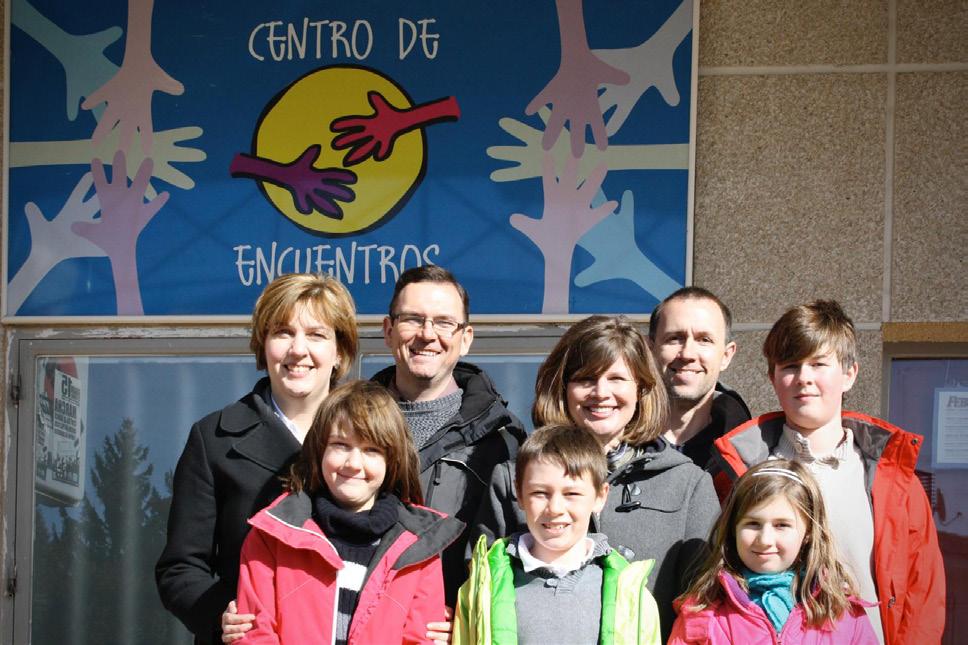
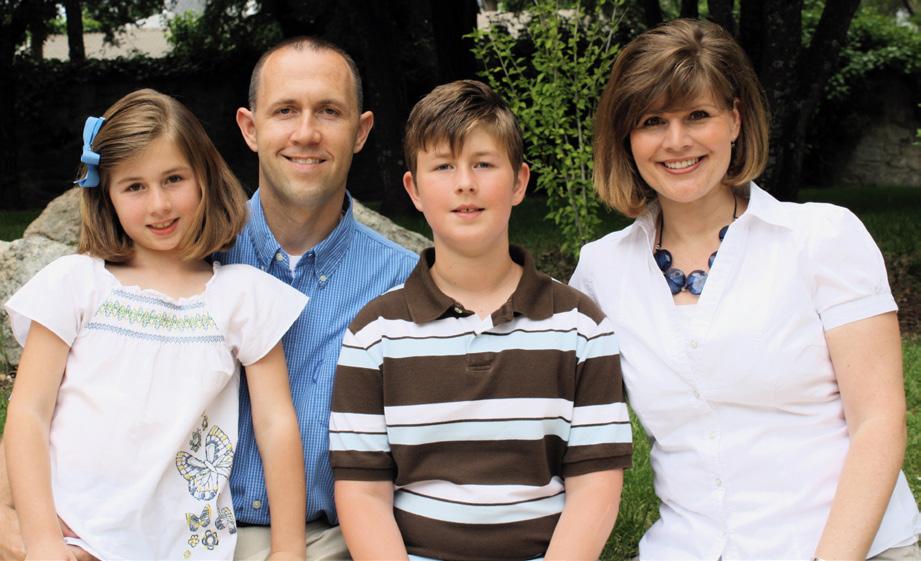
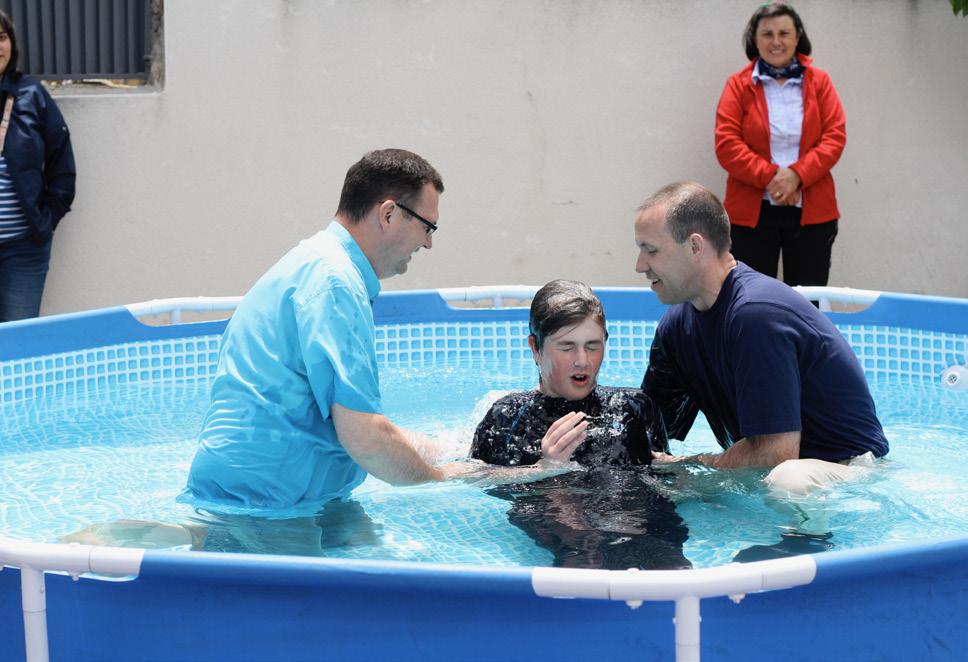



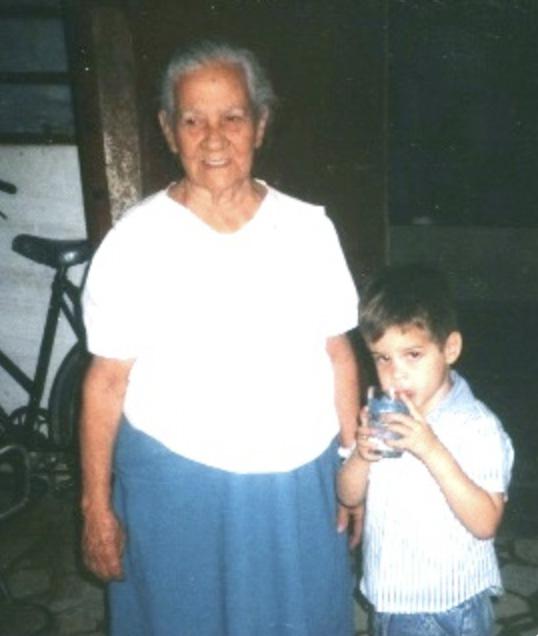
BY ANNA SOTERO FERN Á NDEZ
I still remember the first time I saw her. We were celebrating the 70th anniversary of the Free Will Baptist Convention of Cuba at the Cedars of Lebanon Theological Seminary. I was 15 years old. She had lost her sight, but not her vision. She looked very old and needed support to walk to the front of the congregation. She told stories from her youth and encouraged us to be faithful to the Lord.
As I did with so many other heroes of the faith who were present, I looked at Virginia Estévez with admiration and respect. She had known Thomas and Mabel Willey. She dedicated her entire life to serving the Lord. She lived through really difficult times in Cuban history and still always maintained her faith. While other elderly people become bitter with the passing of the years, she seemed to grow more and more joyful — willing not only to bear witness, but to be a living witness of our God.
One way she served the Lord from a very young age was constantly praying for specific children. One of those children was me! She kept children’s photos and names to intercede for them before God. When I found out, I felt supported. A mixture of joy, love, peace, and gratitude filled my heart.
I was 17 years old before I met her in person. Cari Ortiz, one of her spiritual daughters who looked after her, was with her. When I finally sat next to Virginia Estévez, I introduced myself and thanked her for her prayers. I also told her I had decided, like her, to be a missionary, to enter the seminary to study. I don’t have the words to describe how her face lit up. Tears ran down her cheeks, and she thanked me.
Today, Virginia is with the Lord. She has returned home, finished her race, and obtained her reward. She never married or had biological children, but she never lacked spiritual children to care for her in old age. I can’t help but think about how many servants of God I know today — spanning multiple generations — who were in her prayers. I believe this is precisely where discipleship of the next generation begins: with prayer.
More than 80 years ago, Thomas Willey came to Cuba with his family. Many generations have passed since then, but I firmly believe nothing would have been possible without prayer. Since this has been the case, today we pray for the generations following us who will serve the Lord.

We disciple upcoming generations in several ways. Some churches have an up-close and personal mentoring program:
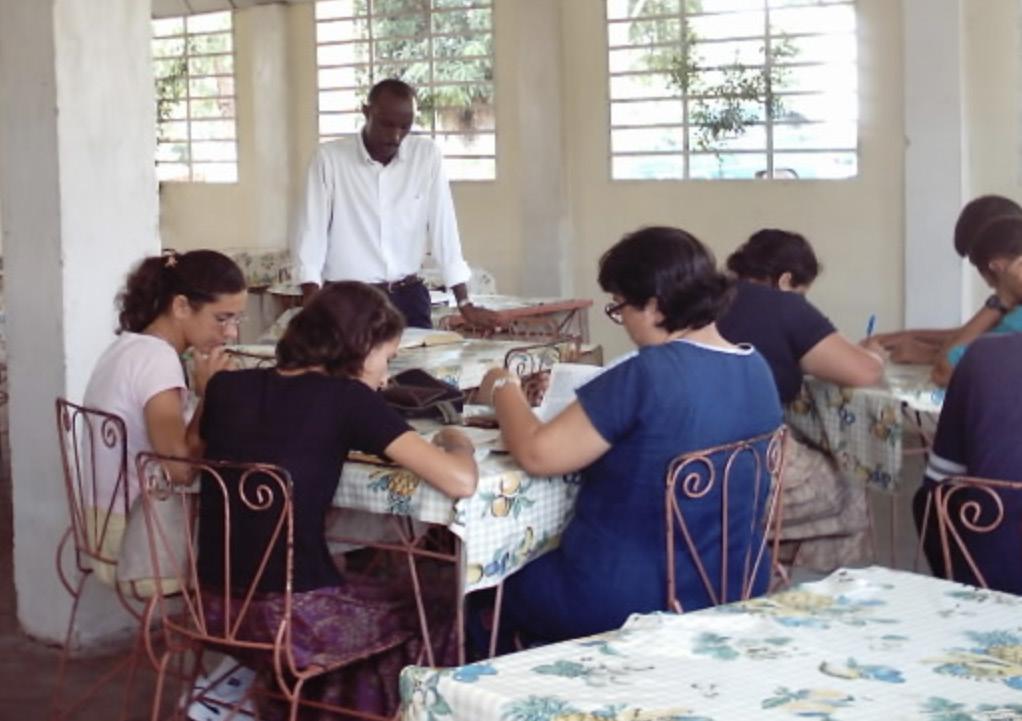
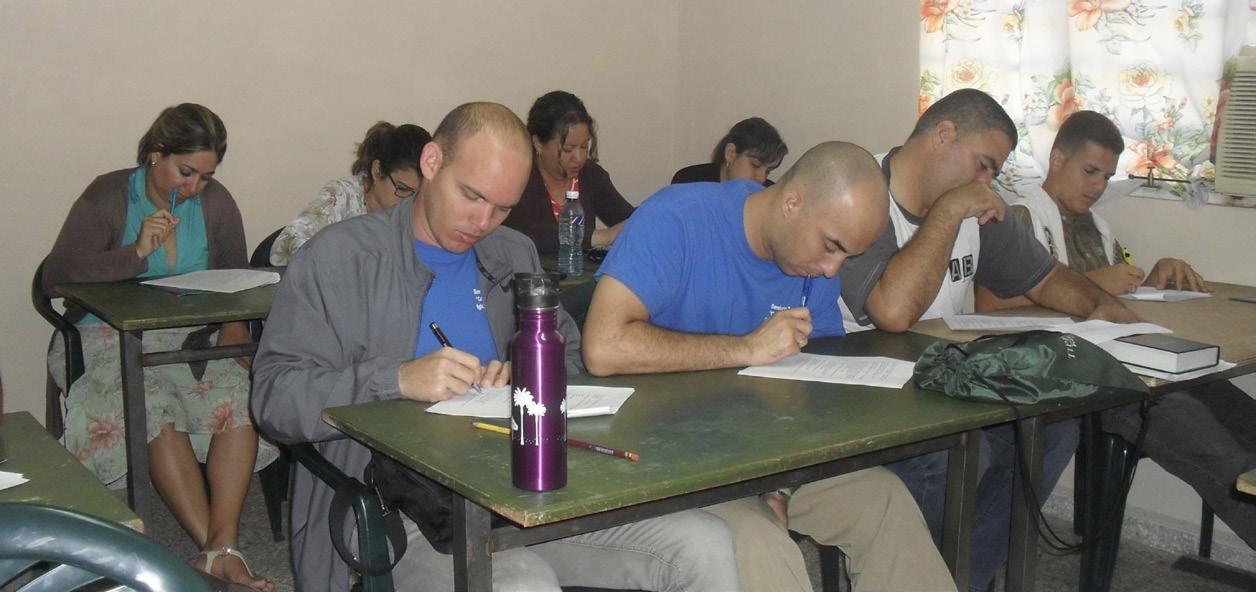
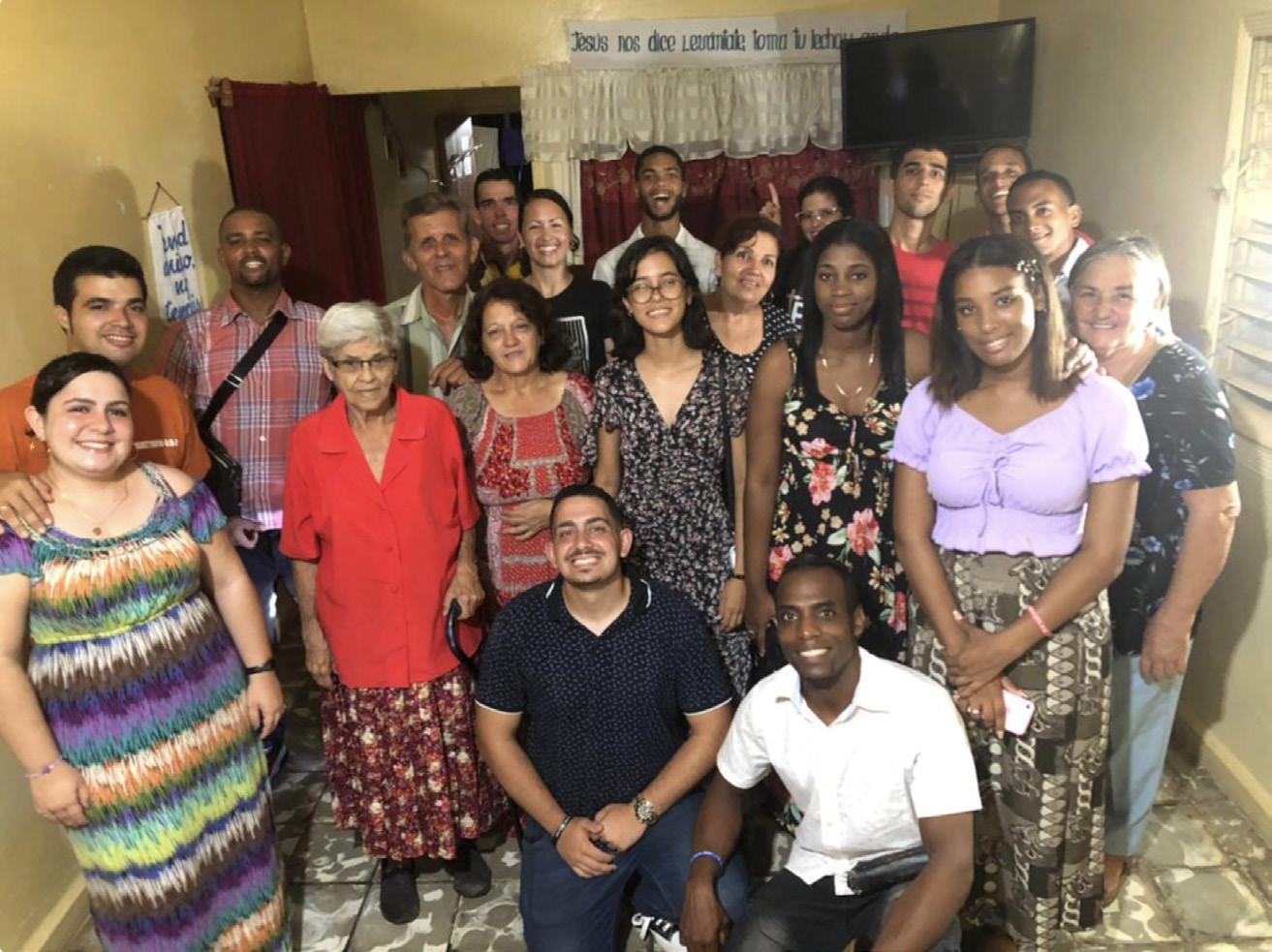
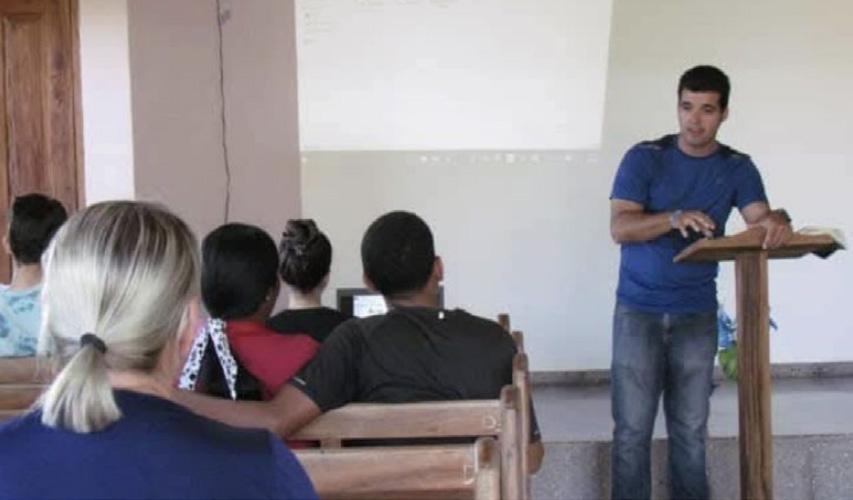
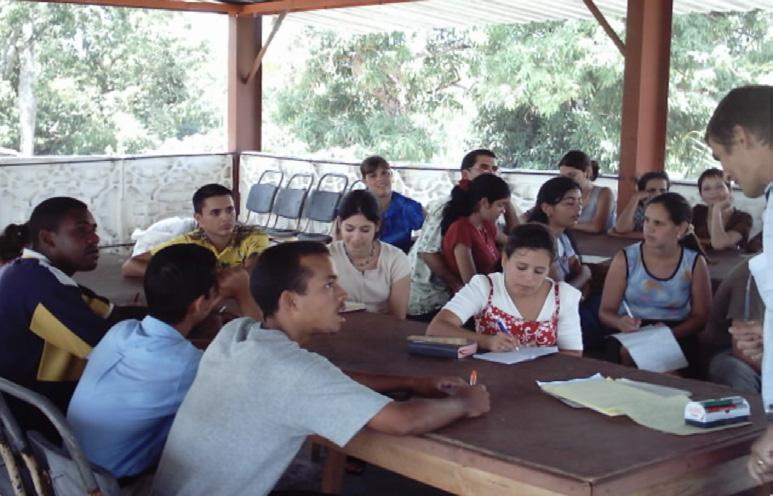
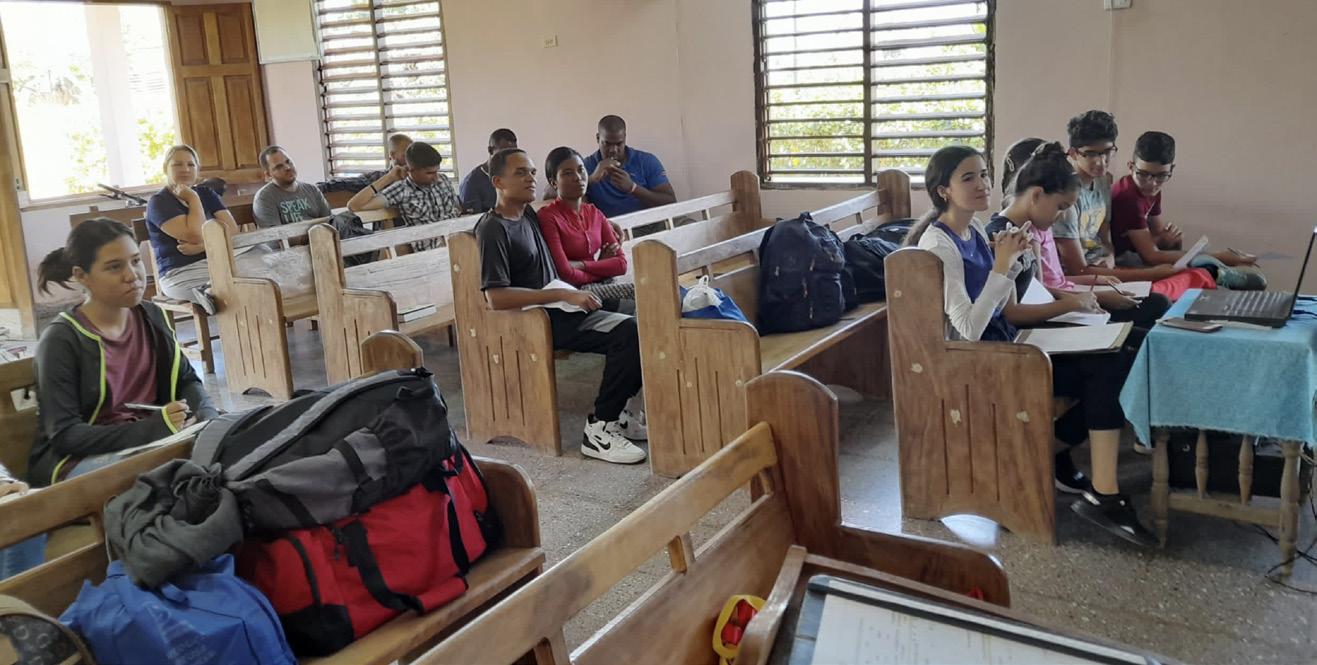

one leader for each disciple. They walk together in daily life, learning from shared experience. This closeness yields the confidence and privacy to allow the disciple to open his or her heart and confess sins and wounds needing the Lord’s healing.
This is a long-term strategy and sometimes seems slow and without much visible fruit. However, it gives the disciple a small, private space to be sincere and, with the guidance of the Holy Spirit, recognize needs and accept God’s transformation. In this way, the mentor, with the help of the Holy Spirit, can guide the disciple, always in a biblical way, to deal with aspects of spiritual growth unlikely to be confessed or shared in a group.

I can’t help but think about how many servants of God I know today — spanning multiple generations — who were in [ Ms. Virginia’s] prayers.
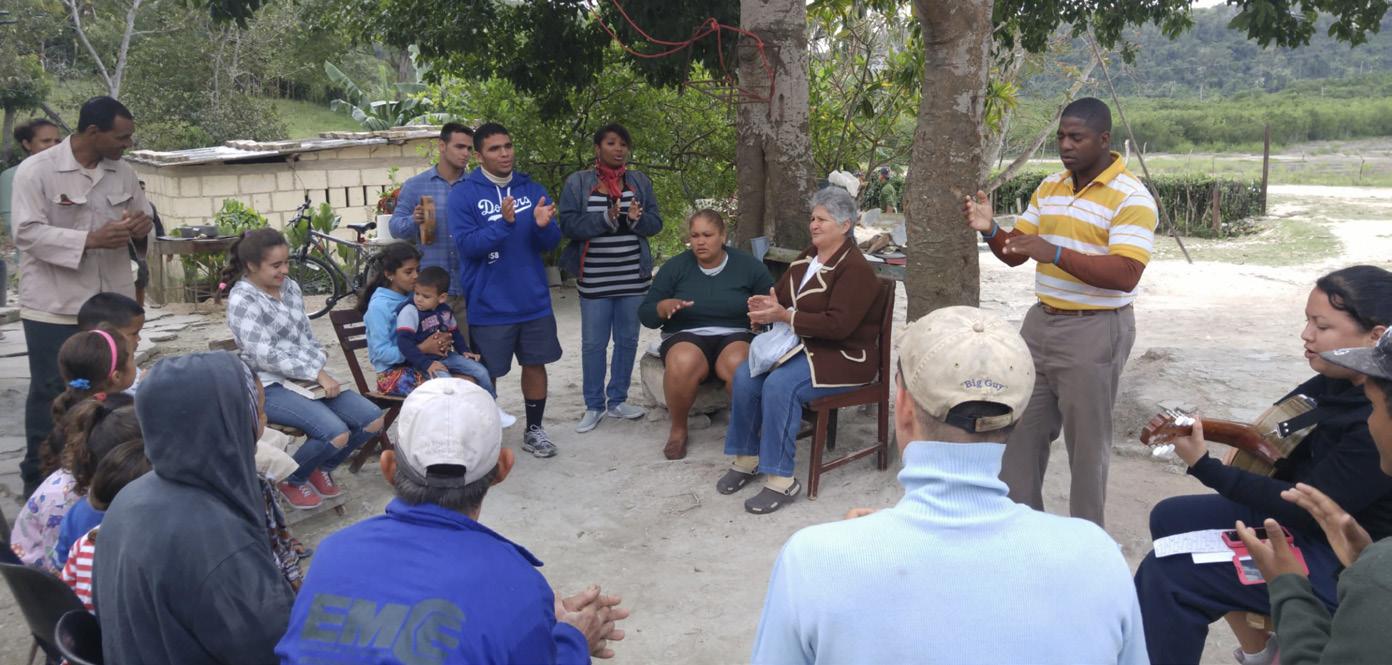
The second part of this strategy is an endless chain of biblical discipleship. The objective is to make disciples who become mentors for other disciples. The disciple is prepared, in turn, to make another disciple. When the time comes, this next group will mentor other disciples. This is what Jesus did with His disciples and what they did with others.
Through local discipleship courses or Bible institutes, the next generations are prepared in subjects such as inductive (Bible study) methods, New Testament, Old Testament, bibliology, homiletics, Spanish (language), Christian life, biblical customs and practices, and more. The goal is to prepare responsible and capable leadership to work within the church, achieving


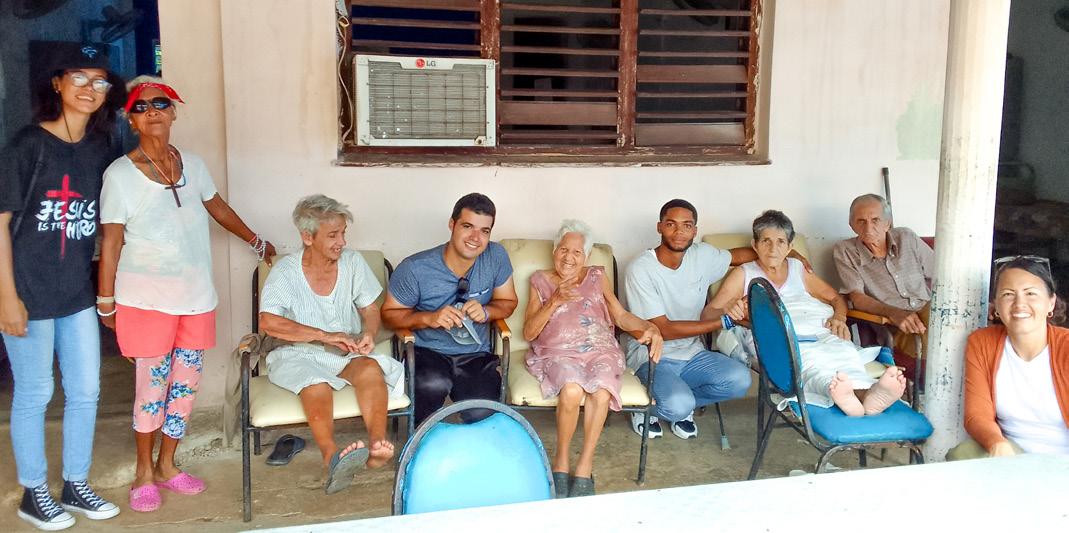
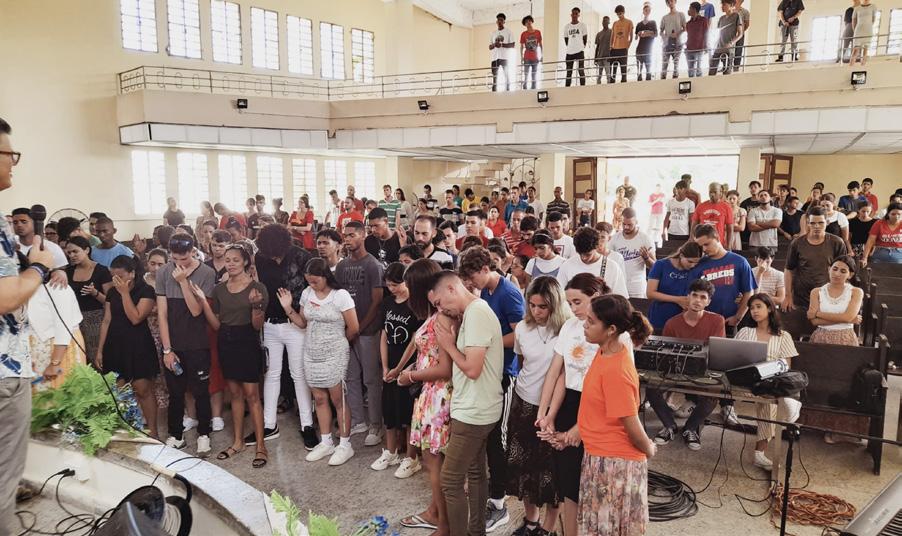
a healthy balance between a spiritual life of integrity and the necessary academic preparation to minister to others in the local church. Through these courses, those who become youth leaders, children’s teachers, worship leaders, evangelists, and counselors in the churches are trained.
Everything does not end here. Young people are tested and supervised by their pastors. Those who feel a genuine call, meet the requirements, and have the necessary maturity can enter the Cedars of Lebanon Free Will Baptist Theological Seminary. They prepare with greater rigor and depth for life in ministry, not only in theory, but also in practice.
Students must be involved in practical ministry in what we call “missionary fields.” These fields can be house churches, missions, or small churches where students practice everything they learn, practical training along with instruction.
The main objective of the National Department of Free Will Baptist Youth is the discipleship and growth of new generations. We recognize the ever-increasing need for Christ for our nation. The largest event each year is the week of spiritual and recreational retreat for young people, which we call youth camp. Last August, we used the theme Influencers, based on the biblical text of 1 Timothy 4:12 and focused on teaching young people how God wants to use them and their testimonies to be influential for God’s glory and purposes. That event gathers the largest number of young Free Will Baptists to focus on a responsible, intentional study of the Scriptures and spiritual growth.
In addition, young people participate in missionary trips throughout the year to various regions of the country. We spend approximately four days in small, remote churches that need support. Food and work materials are provided by donations. Young people from area churches attend after receiving
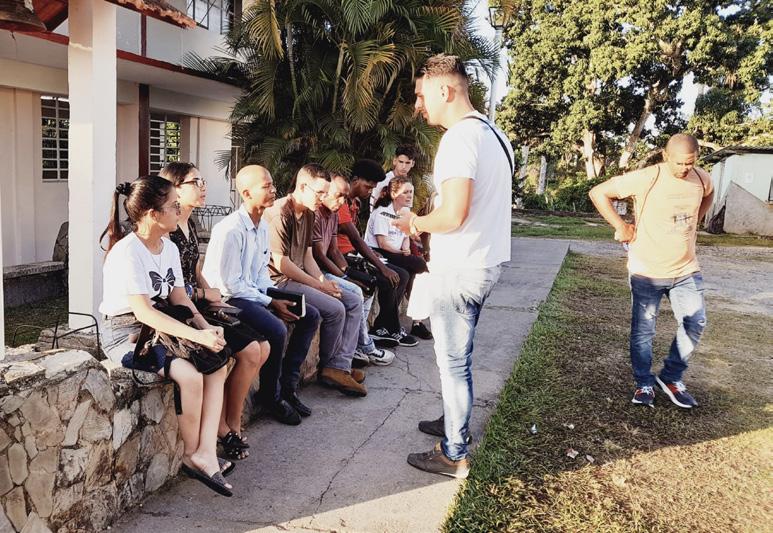
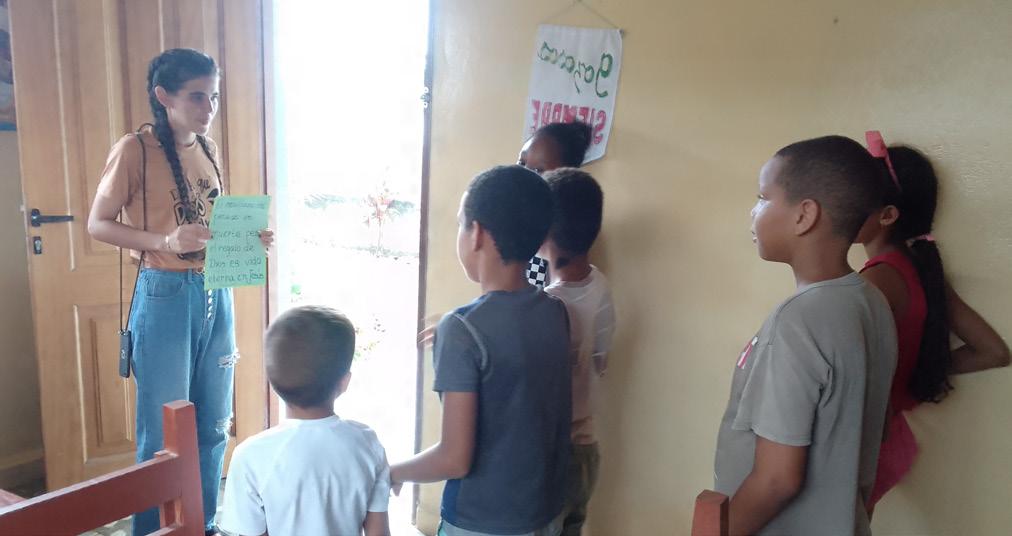
an open invitation made months in advance.
Based on the needs of the church and the characteristics of the region, we plan a program. We start with a workshop on practical evangelism for youth. Later, we choose work teams, considering the gifts and talents of each young person, without losing focus on evangelism. Some evangelize in the streets. Others do evangelism with children. We also evangelize through sports and donations of clothing and food to needy people in the area. This strategy allows young people to apply what they learn. By immediately employing teaching, they can take this training back to their churches and encourage them in local outreach.
We have had wonderful experiences during these events. On one occasion, we were allowed to share the gospel with the elderly in a nursing home through food and interaction. Services are always held in the host church, and we connect new converts to the pastor who will continue the discipleship process.
God has a purpose in everything. His wonderful plans do not end when servants like Thomas, Mabel, or Virginia leave to be with Him. No! The work will continue until His glorious return. God used these servants to prepare previous generations…and ours.
Today, God wants to use us to prepare future generations. Let us pray and act. Let us be part of God’s great work. To Him be all the glory.
About the Writer: Anna Sotero Fernández grew up in a ministry family. Her father Leonel Sotero is the current executive secretary of Cuba's national convention, a pastor, and church-planter. She and her pastor husband, Emanuel López Ramírez, live in a rural farming community in Mayabeque province, where they focus on church-planting, evangelism, youth work, and community ministry. Anna is the leader of Cuba's National Youth Ministry, as well as a children's teacher and translator.
Antioch, TN — Stacy Ross, pastor of Northridge FWB Church in Guymon, Oklahoma, said it well: “On our own, we could never get the gospel to Japan, Spain, Pakistan, India, Ecuador, Kenya, France, or any of the other places IM missionaries and partners go. But through the WMO, we get to be a part of what Jesus is doing all over the world.” The gospel simply cannot reach the ends of the earth without YOUR help!
Last year, Free Will Baptists joined together and gave $792,358 to the World Missions Offering. IM is thankful for every person who gave to the WMO to make this happen. Children learned about the WMO through IM’s missions-focused kids’ curriculum. Churches and individuals
gave sacrificial gifts and offerings. WMO Ambassadors joined forces to share the story of the WMO in their states. Every nation, every people group, and every heart needs to hear the gospel message.
What does the World Missions Offering do?
Funds Partnerships. Our partners are spread out around the world in places missionaries often cannot go. Their strategic reach extends the gospel even further into places of darkness.
Launches New Missionaries. The WMO helps new missionaries launch their fundraising efforts and get to their fields of service faster. Last year, six IM missionaries received funds directly from the WMO. Some of them are already actively involved in ministry on the ground.
Boosts IM General Fund. Missionaries and ministries would not be possible without support from the General Fund in mobilizing, vetting, training, encouraging, and sending. These things make it possible for the gospel to go out!
IM needs your help to CONTINUE THE MISSION. It’s about the gospel!
Antioch, TN — Sandra Payne of Franklin, Tennessee, passed into the arms of her Savior December 20, 2024, at age 86. Born February 10, 1938, to Ebenezer and Edith Dawson of Clarksville, Florida, she attended St. Luke’s Hospital School of Nursing in Jacksonville, Florida, receiving her nursing degree in 1959. Afterward she moved to Nashville, Tennessee, to attend Free Will Baptist Bible College (now Welch College), where she prepared for missionary work. She married Eddie Payne August 26, 1960.
Together, they served and enjoyed the people of Côte d’Ivoire, West Africa, from 1964 to 1988. At times, Sandra served as the only American healthcare worker at the isolated Doropo clinic. She touched the lives of thousands of Ivorians, physically and spiritually.
Following retirement from overseas missions, Sandra continued serving people in distress as a psychiatric nurse in Nashville, receiving a Frist award for excellence in nursing.
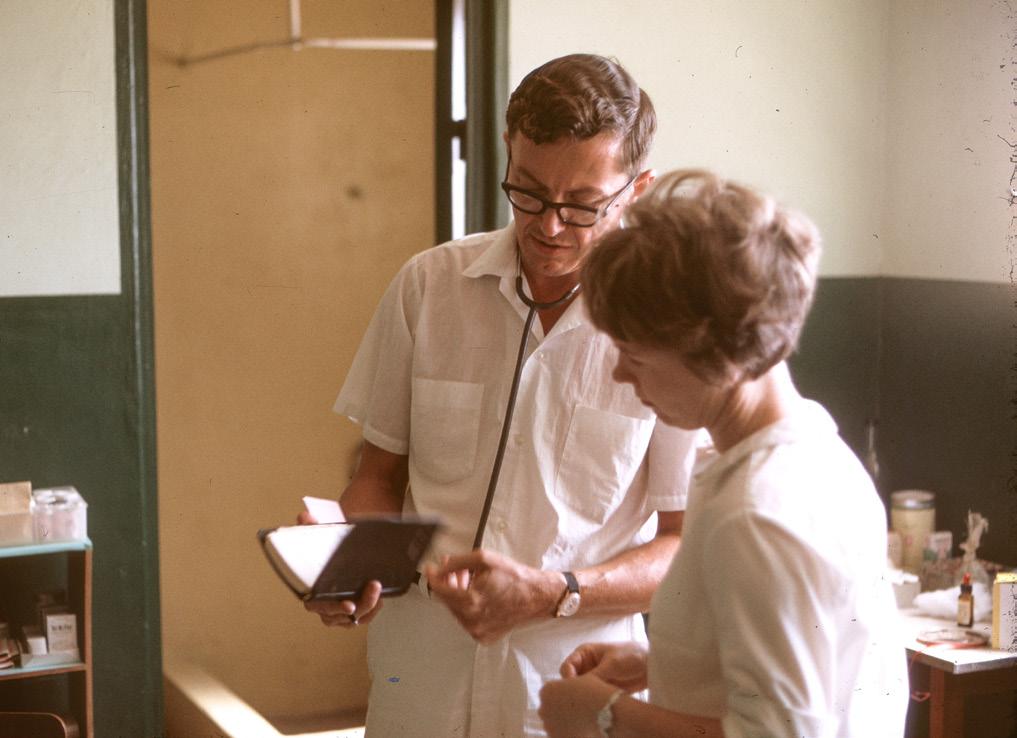
Sandra left behind her husband of 64 years, Eddie; daughters Laura Stafford and Debbie (Verlin) Anderson; seven grandchildren; and four great-grandchildren.
Family and friends celebrated Sandra’s life December 28, 2024.
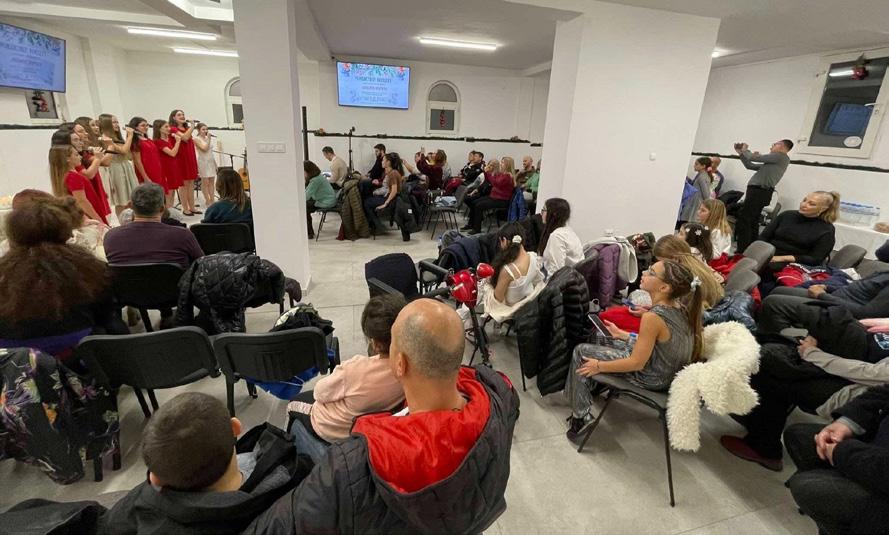
Varna, Bulgaria — Trif Trifonov reported the New Life Church in Varna, Bulgaria, “made the most of every opportunity” to share the gospel during the Christmas season. Among the Christmas parties hosted for various demographics was one for Ukrainian refugees. Over 100 people (parents and children) attended. In addition to playing games, singing a Christmas song in Bulgarian, and each person receiving a gift, the gospel was clearly presented.
The church invited a children’s singing club to perform a Christmas concert at the church. Parents joined the children, and they all heard the good news presented as “the reason for the season.” Children received Christian literature and a large bar of chocolate as a thank you for
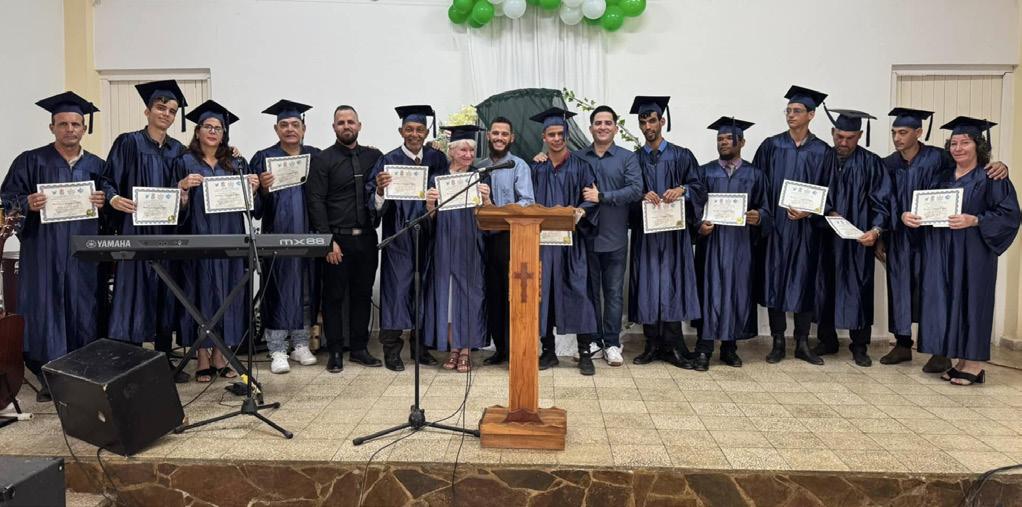
Cuba — Sixteen people completed the requirements for an associate’s degree from an extension of the Los Cedros seminary. The Good Shepherd FWB Church hosted a service as the group received their certificates February 9, 2024.
their performance. Their vocal teacher loved it and, despite a heavy Christmas concert schedule, said she would like the New Life Church event to become part of their regular schedule. Trif invited all the attendees to the Christmas service. Trif said, “Some parents said they would come, and the parents of one of the girls really did!”
During their second annual Christmas Eve service, worship songs and a Christmas poem preceded Bible readings in the four languages represented at the service: Bulgarian, Ukrainian, English, and Kazakh. Trif concluded the candlelight service with a short sermon entitled "The Light of the World.” He then led any who wanted to accept Christ as Savior to pray along with him.
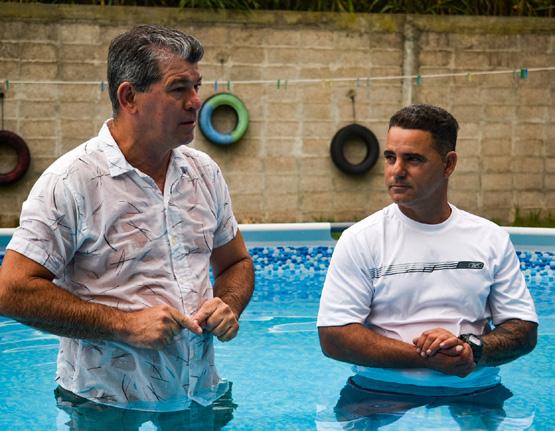
Uruguay — Sunday, February 12, Pastor Yosvanys baptized two women and two men at the Emanuel FWB Church in Montevideo, Uruguay. The church has seen slow but steady growth since Pastor Yosvanys and his family emigrated from Cuba to help revitalize the church.
Brazil — The Alliance of FWB Churches in Brazil inaugurated an online discipleship study for young people in January 2025. The initiative is designed to encourage more young people to enroll in Bible college for training to serve in various ministries. Thirty-five young people from six churches attended the inaugural class January 27.
Panama —
A group of 12 people from the Buenas Nuevas FWB Church in Chitré, Panama, traveled to El Salvador for a ten-day missions trip February 1, 2024. The team worked with the Escudera family, missionaries from Panama to El Salvador.
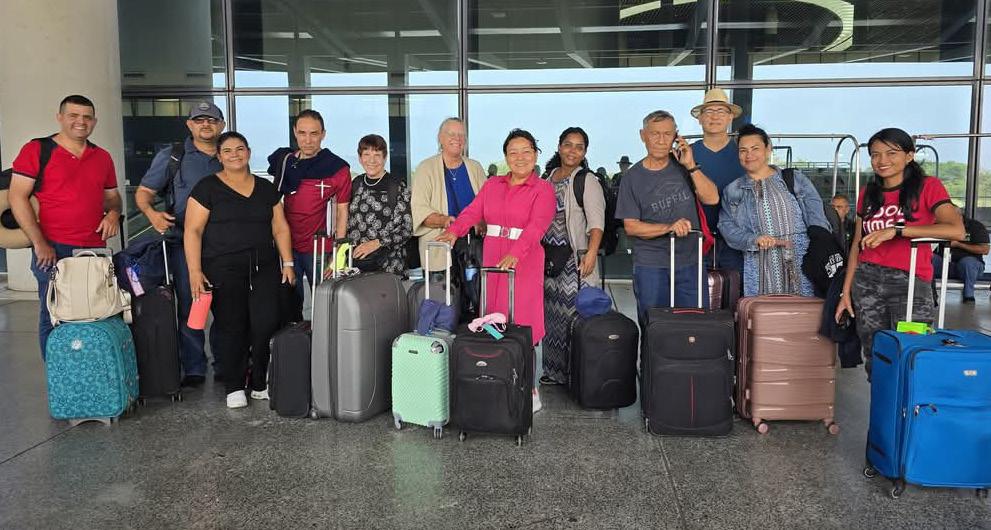
BY PAUL V. HARRISON
“Teach me thy way, O LORD; I will walk in thy truth” (Psalm 86:11a).
At age 12, God gave Henry Dunster “an attentive eare” for preaching. “The word was more sweet to me,” he recalled, “than anything in the world.” Enrolling at Cambridge University, he confessed to an “inordinate love of humane learning” and, on occasion, “dissolute living,” by which he “lost his [spiritual] comfort.” The convicting tongues of two preachers rescued him from further sinful indulgence. Upon graduation, he continued to struggle spiritually: “The more I did strive to keep the Law, the more vile I felt myself….I sought righteousness by the Law.” Finally, he wrote, “I cast my soule on (the) Lord’s grace & then I bid adue to al [self] righteousness.” In 1640, he sailed for the New World.
Soon after arriving in Boston, civil and church leaders asked Dunster, though only about thirty, to establish a college in nearby Cambridge, one aimed at producing an educated clergy. Already named Harvard after an English donor, it had no organization or leader. Accepting the challenge, Dunster moved to Cambridge and became the first president of the first college in America. He served as teacher, administrator, disciplinarian, and financial officer.
Under the authority of the Massachusetts Bay Colony, the churches, the legal system, and now Harvard all functioned according to accepted Puritan theology. The college’s first seal contained three open Bibles, each stamped with one syllable of the Latin word for truth: Veritas
Dunster served admirably. His pastor called him one “whom God hath much honored and blessed.” A Harvard historian spoke of his “eminent worth and accomplishments.” But 12 years into his presidency, trouble developed. Having believed in paedobaptism (that infants of believing parents should be baptized), Dunster, through further study, came to reject this entrenched Congregational orthodoxy. He concluded only those who understood the gospel and placed faith in Jesus should be baptized. He announced his new belief one Sunday at church, and like a bombshell, it reverberated far and wide.
February 2, 1654, a dozen theologians gave him the opportunity to state and defend his case for believer’s baptism.
The meeting concluded with no one having changed his mind. His well articulated views, however, did have an impact. Jonathan Mitchell, Dunster’s 29-year-old pastor and former student, after hearing the college president explain his beliefs, wrote: “After I came from him, I had a strange experience; I found hurrying and pressing suggestions against Paedobaptism, and injected scruples and thoughts whether the other way might not be right, and infant-baptism an invention of men; and whether I might in good conscience baptise children and the like. And these thoughts… left a strange confusion and sickliness upon my spirit. Yet, methought, it was not hard to discern that they were from the EVIL ONE.”
Oh, the power of tradition!
Seeing the inevitable, Dunster resigned, but authorities offered him the opportunity to retain his position if he would keep silent on the point in question. This his conscience would not allow, and his dismissal soon followed. Driven from his job and eventually from his community, he wrote the court: “Our times are in God’s hands, with whom all sides hope, by grace in Christ, to find favor, which shall be my prayer for you, as for myself.”
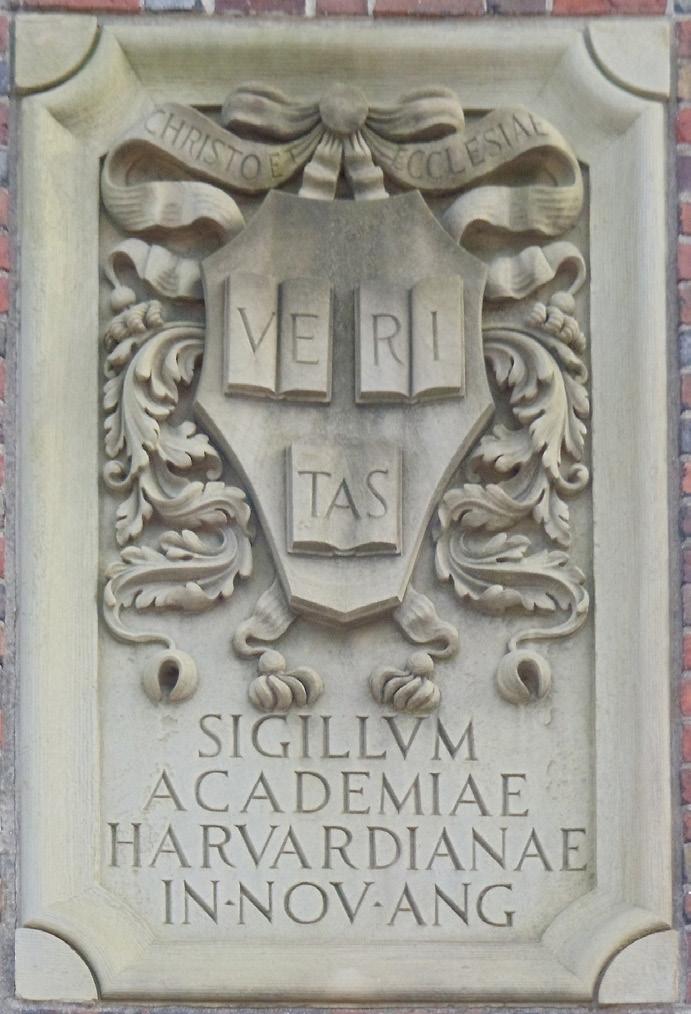
About the Columnist: Paul V. Harrison has pastored Madison FWB Church in Madison, Alabama, since 2015. Previously, he pastored Cross Timbers FWB Church in Nashville, Tennessee, for 22 years. He was an adjunct professor at Welch College for 17 years, teaching church history and Greek. Paul is the creator of Classic Sermon Index, a subscription-based online index of over 66,000 sermons, with clients including Harvard, Baylor, and Vanderbilt, among others: classicsermonindex.com.

BY PHILLIP T. MORGAN
I was elated to start my new job teaching history at Welch College in January 2017. However, I was a bit worried I wouldn’t enjoy the same opportunities I previously had in youth ministry to work one-on-one with young people. Thankfully, my fears were unfounded. In fact, building relationships with students and continuing them with alumni has been a significant and enriching aspect of my work.
For this reason, I was naturally excited to catch up with former student Daniel Rojas recently. Over lunch, we talked about life changes, history, and American government. (We are historians, after all.) I was particularly intrigued to learn about his experience teaching in public school. He had a great perspective on how Christians should engage the complexities of today’s educational landscape. So, I asked him to share some of his thoughts regarding specific aspects of our conversation.
Daniel Rojas graduated from Welch College in May 2020 with a B.S. degree in history education. He had arrived at Welch in 2016 after serving two military tours in Afghanistan. I was newly hired and still getting my “sea-legs” as an instructor. His excellent work was a great encouragement to me in those difficult days. Since graduation, Daniel has continued to impress me with his serious commitment to Christ, excellent work ethic, and leadership in his church and community. After his time at Welch, Daniel earned a master’s degree in military history from Austin Peay State University before being hired in 2022 by Tennessee’s Clarksville-Montgomery County School System to work in the largest and most diverse inner-city school in the county.
For two years Daniel taught U.S. History and Geography and U.S. Government and Civics, both required courses in the state of Tennessee. He was so successful in preparing students for the Government and Civics Test required to pass to graduate high school that he was named “Rookie Teacher of the Year” in his school and asked to become the district lead government and civics teacher. In that role, he had opportunity to prepare and assist government and civics teachers throughout the county in developing content for class and carrying out responsibilities. In this way, his influence extended to thousands of students. Other leadership opportunities soon followed.
Then, in August 2024, Daniel began teaching history and government at Pleasant View Christian School in Cheatham County, Tennessee. The school, founded by area Free Will Baptist churches, has provided consistent high-quality education to students for nearly fifty years.
What unique opportunities and challenges are presented to Christians serving in public schools?
In my experience, public schools offer significant career opportunities. During my time as a public school teacher, I attended professional development training and national educator conferences for my specific subject specialty. These offered wonderful opportunities to grow as a professional
and represent our faith in a secular setting. A vast number of career opportunities or “tracks” exist within the public school setting. Some districts provide administration pathways for teachers, department lead positions, or — in my case — the opportunity to serve as a district lead teacher.
In my second year, I was asked to serve as a U.S. Government and Civics district lead teacher, to provide resources and support to other government teachers. This was a huge opportunity to create content and resources used to support the education of every student in the district (since government is a required course). I created content that challenged students to think critically and seek truth. As we know, all truth ultimately is God’s Truth, and the chance to spread that Truth in a secular environment is an invaluable reward. There is opportunity to influence the education of hundreds if not thousands of students from a biblical worldview.
Many students easily identify Christian teachers and administrators in the public school system, often seeking out these individuals for advice and perspective on life decisions, personal problems, and academic counsel. Though there are legal restrictions regarding volunteering information about personal religious beliefs, teachers asked about their faith by a student are legally allowed to answer, which creates a marvelous opportunity to share the gospel and the wisdom of Scripture.
The challenges confronting Christians in public schools widely vary. I worked in the largest, most diverse public high school in the district and encountered a considerable amount of conflict every day. This conflict often took place between students, but, at times, teachers were drawn into these situations (sometimes physically breaking up fights). I also experienced varying degrees of tension between teachers and administration. The Christian must navigate these conflicts in a way that brings honor and glory to God. Christians must reflect daily on their calling and place in this world, especially in the public school setting.
Teachers also face a huge daily struggle to manage the classroom and environment. Public school teachers face “decision-fatigue,” a term used to describe the mental, emotional, and spiritual exhaustion of making 1,500 decisions per day. Managing rowdy students (many from a difficult home life)
and those who fail to submit homework, grading assignments, fulfilling administrative tasks, teaching content, preparing students for and administering standardized tests, and designing pacing guides for teaching content, all while maintaining a Christian attitude, can leave a teacher drained.
Christian teachers in public schools need to remind themselves consistently that the Lord has called them to this vocation to represent and share about Him. Many feel they must attempt to hide their faith, but if we think biblically about all our life and work, our faith permeates every aspect of our work.
What unique opportunities and challenges do Christians have serving in a private Christian school?

Some of my favorite benefits of working in a Christian school relate to my family. I’m closer to home, and we receive tuition benefits for our seven children (yes, seven!). My wife and I both work at the school, and we get to see our children throughout the day. I love that I get to teach and be at school with my children. I see their day-to-day routine and activities. As a result, our daily routine flows better and has been a great fit for our family. It is also wonderful that many of my fellow faculty members and school staff attend my church, and I know their commitment to Christ.
As it relates to my day-to-day work experience, I love the slower pace and less stressful atmosphere. Without the bureaucraticallymandated pacing guides and standardized tests of the public schools, I can focus more on the content that needs to be taught. I have more control over my teaching and classroom. This means I can dig deeper into my subject and help students better understand the material. With smaller class sizes, I can build stronger, more meaningful relationships with students. Students are also generally more attentive and well-behaved. With clear biblical boundaries and standards, I do not have to wait for a student to ask about my faith. It is a natural part of our daily conversations and content. Parents are also eager to hear from you and — for the most part — are supportive of the teachers and administration.
For me, the biggest challenges of working in a private Christian school are the more limited resources and opportunities for professional development. That is not to say such opportunities are absent, but they require more intentional individual effort.
Do you think there is a specific need for godly men to work in secondary education, especially in inner-city schools?
Yes! We desperately need godly men working in secondary education, especially in inner-city schools. Countless young men in these schools have very little structure in their lives and few positive male role models. Some of my students worked to support their families and paid their own bills; others were involved in very dangerous activities. Many of my female coworkers and administrators regularly commented on the importance of male teachers impacting students or groups of students for the better.
One of my classes was an English Language Learner (ELL) class with most of the students being Spanish-speaking males. These students often had been passed along or left alone in class because of the language barrier. As a result, many felt isolated or alienated by the school system and said many teachers did not care about them or their future. As a man who spoke their language, I was able to build significant relationships with these young men. Godly men have a gigantic opportunity to reach the lost among the young men in our schools starving for mature male figures to provide counsel and discipline.
How do you think your time at Welch helped you prepare for teaching in both sorts of schools?
The Welch College history education program prepared me well for teaching in both public and private schools. Most helpful was learning to think critically from a biblical worldview, which helped me research content for myself and teach it properly rather than simply relying on the curriculum. In addition, when I teach students to think critically about history, we are searching for truth. This can lead to opportunities for worldview examination and exposure to God’s Truth even in a public-school setting.
Welch also helped me prepare to work and act with excellence. Teachers have many opportunities to work below the standard, especially in the public school setting. However, the program helped set a professional standard for me to follow
Christian teachers in public schools need to remind themselves consistently that the Lord has called them to this vocation to represent and share about Him.
and instilled confidence in me that I can perform my calling with excellence.
How does your work as a teacher in both public and private schools connect with your service to God?
I remember hearing from more than one of my instructors at Welch, “If you’re not in education to change students’ lives, then you ought to be doing something else.” Education is 10% content and 90% relationships (mentoring, leadership, and fostering maturity) and administration (including standardized testing). Underlying all of that is our ministry, whether we teach in public or private school.
Every one of those 1,500 daily decisions a teacher makes is an opportunity to respond in a way to serve and glorify God, His church, and His world through biblical thought and life. These decisions can be as simple as listening to a student living in a difficult home situation and providing biblical counsel. As Christian educators, our choices may draw scrutiny or attack, but that simply means we’re living out our faith before the world (2 Timothy 3:12). We carry with us life-changing and ultimate Truth. We have a responsibility and privilege to share it and let the Holy Spirit do His work in the classroom and in our conversations. After all, if you’re not in your vocation as a ministry to God, what are you really doing?
About the Writer: Phillip T. Morgan is curator of the Free Will Baptist Historical Collection housed at Welch College in Gallatin, Tennessee, where he additionally serves as History Program coordinator and professor. Phillip, his wife Megan, and their children live on a small farm in Robertson County, Tennessee. This article was adapted by permission from an essay published at www.HelwysSocietyForum.com.
Gallatin, TN — Welch College will unveil a new Master of Arts (M.A.) degree in Psychology this fall, according to Provost Matthew McAffee. Pending accreditor approval, the program is set to launch August 25, 2025.
This new program will be the sixth master’s degree available from Welch College, joining existing master’s programs in Humanities, Organizational Leadership, Teaching, Theology and Ministry, and the Master of Divinity degree.
The proposed 34-hour program will be available online and on-campus. Including a 16-hour psychology core with planned clinical and research tracks, the program builds on existing strengths within the B.S. in Psychology and will make use of a limited number of existing courses in other master’s programs.
“The M.A. in Psychology offers an exciting opportunity to shape future practitioners in the social sciences with a distinctly Christian worldview approach to soul care,” McAffee said. “Under the able leadership of Dr. Sarah Bracey, we believe this program will garner success in drawing a unique set of students to graduate studies at Welch.”
The program is designed to provide a shorter, more general psychology master’s for students unsure of which specialty area of psychology they wish to pursue.

Graduates would be well-positioned to transfer coursework into more specialized programs at other institutions. Upon approval, Welch plans to pursue transfer agreements with other graduate programs in areas like clinical psychology, counseling, and social work.
The degree is also designed to meet the needs of pastors and ministry workers with an interest in pursuing coursework to help them better serve in ministry. “The program has been designed not only to benefit students interested in an advanced degree from a Christian worldview,” Bracey said, “but the dividends of their training and skill sets will also spread to the local churches and the communities they serve.”
Welch will begin enrolling students in the program after accreditor approval. Prospective students interested in the degree may contact Dr. Bracey at sbracey@welch.edu for more information.
In other program news, Welch College intends to close its Associate of Science in Business Technology and Bachelor of Science in Early Childhood. The college will teach out these programs for any current students but will not enroll students in these programs after August 23, 2025.
The Associate of Science in Business Technology is being closed for a lack of interest. Individuals with questions related to this closure should contact Dr. Rebecca Deel: rdeel@welch.edu.
The Bachelor of Science in Early Childhood is being closed because of recent changes in the Tennessee Department of Education. Welch will continue to offer the Associate of Science in Early Childhood (which has become the industry norm for daycare workers rather than the four-year degree).
Additionally, the college will continue to offer the Bachelor of Science in Child Development and Learning (K-5), which can be applied in preschool settings and has the added benefit of providing state licensure for elementary school teachers. Individuals with questions related to this closure should contact Dr. Stephen Beck: sbeck@welch.edu.
Learn more about all program offerings from Welch College at welch.edu/academic.
Gallatin, TN — Welch College will restart its men’s and women’s intercollegiate soccer programs and men’s golf program, according to Athletic Director Greg Fawbush. Welch paused both programs following the COVID pandemic, owing to recruiting restrictions at that time, and will bring all three teams back in the fall of 2025.
“We are excited to restart these programs after four years of stabilizing our athletic department following the pandemic,” Fawbush said. “Having the ability to field both soccer and golf programs will increase opportunities for Welch students and the students in our community.”
The restart of the soccer programs is made possible by a large donation from a generous donor and significant gifts from Free Will Baptist Foundation and funding from the Alumni Project of the Welch College Alumni Association. These gifts will make possible the construction of a soccer field on the Welch campus as well as other associated costs. “We encourage friends and alumni to give to help
fund the restart of these teams,” Fawbush said, encouraging potential donors to visit welch.edu/give.
“We’re planning to begin construction on the new field immediately in hopes it will be finished by the fall of this year,” Fawbush continued. “The generous donation will also allow us to restart the golf program, which is a growing sport in our community.”

Students or prospective students interested in men’s or women’s soccer or men’s golf may contact Coach Fawbush at gfawbush@welch.edu for more information.

BY BARRY RAPER
2 CORINTHIANS 3:1-11
Without doubt, the Star Wars saga has become one of the most popular movie series of all time. By now, nearly everyone — even those who care little about science fiction — has become somewhat familiar with the role of “The Force” in this intergalactic struggle. The Force is a mysterious, impersonal energy binding the galaxy together, and those who understand it and unite with it can tap into its seemingly magical power.
Sadly, many Christians seem to think of the Holy Spirit in similar fashion. Even well-meaning Christians sometimes refer to the Holy Spirit as “it” instead of a real Person. And some Christians and churches rarely speak of the Holy Spirit. However, the Holy Spirit is a real Person who seeks to know us and minister to us.
In this passage, while defending the superiority of the New Covenant against false teachers who clung to the Old Covenant and its law, Paul offered three descriptions of the glorious ministry of the Holy Spirit.
1. The Holy Spirit provides internal change. The Old Covenant law was written on tablets of stone. The New Covenant of the Spirit inscribed God’s law on the human heart. The old was external, a code of rules and regulations given by God. The other is internal, with change, direction, and power from the inside out.
This is not to say the Old Covenant God was concerned only with external obedience. Of course not! There was the letter of the law and the spirit of the law. Though there were devout and faith-filled followers under the Old Covenant, the law could only go so far; it couldn’t reach the heart where true obedience begins.
Paul stressed this through the very existence of the church at Corinth. Responding to critics who questioned his authority, Paul indicated he and his fellow ministers did not need
a letter of commendation from anyone. The transformation of the Corinthian believers was the only evidence needed. Nothing but the transforming power of the Spirit could explain the existence of this church in the midst of pagan culture. And, lest any of us forget, the Holy Spirit is the only reason for the building, growth, perseverance, and health of any church, anywhere. This Spirit-led testimony is being “read” by everyone in that community.
Our backyard fence keeps in our German Shepherd. He has escaped a few times, which provided comic relief for our neighbors who watched us trying to catch him. Ideally, our German Shepherd wouldn’t need an external, visible fence. It could be removed, and he would be happy just to stay in our yard. As you might imagine, this will never happen with our ornery dog. His stubbornness is a great analogy for the external law of God versus the internal work of the Spirit. The law was a fence to “keep us within God’s boundaries.”
The Spirit writes the law of God on our hearts, guiding us internally to live happily under the Spirit’s control.
2. The Holy Spirit provides regeneration. The letter kills, but the Spirit gives life. Paul used the word letter to denote the Old Testament law. It is important to understand the law wasn’t a bad thing. After all, it came from God, instructions flowing out of His character and nature. The law revealed the will of God for humanity.
But the expression the letter kills is based on the fact that the law convicts us as transgressors. Lawbreakers must be punished. In this sense, the law, which is holy and righteous and good, convicts us as sinners and kills us. This is what Paul said about his own life in Romans 7:6-12, concluding, “And the commandment, which was ordained to life, I found to be unto death. For sin, taking occasion by the commandment, deceived me, and by it slew me.”
The problem isn’t God’s law; the problem is me. My internal sin problem. And the law couldn’t deal with my internal sin problem. That problem could only be solved by the gospel. The gospel, the New Covenant, was inaugurated by Jesus through His sinless life, substitutionary death, and subsequent resurrection, a new covenant in His blood. He secured not only forgiveness but also the gift of the Holy Spirit to all who believe.
While the letter kills, the Spirit gives life. He regenerates us, abides within, and gradually changes us from the inside out. His is not a ministry of condemnation, but of giving life and freedom from sin.
3. The Holy Spirit provides everlasting glory. The glory of the Old Covenant is passing, but the glory of the New Covenant is everlasting. Here, Paul stressed the exceeding glory of the ministry of the Spirit compared to the Old Covenant through the example of Moses and the Ten Commandments.
When Moses came down from Mount Sinai after receiving the Ten Commandments from God, his face glowed with a reflection of the glory of God. The Children of Israel, and even his own brother Aaron, were terrified — not by Moses but by the glory of God reflected through him. Yet the awe-inspiring glory present in the ministry of Moses under the Old Covenant fades in comparison to the ministry of the Holy Spirit in the New Covenant.
Maybe you have been camping and used a flashlight during the night. The “glory” of the flashlight shone brightly in the darkness, until dawn that is. As the sun rose, while you may still have had the flashlight on, its “glory” faded, overwhelmed by the glory of the sun.
The ministry of the Holy Spirit provides our hope of everlasting glory as we read in Revelation 21:22-24:
And I saw no temple therein: for the Lord God Almighty and the Lamb are the temple of it. And the city had no need of the sun, neither of the moon, to shine in it: for the glory of God did lighten it, and the Lamb is the light thereof. And the nations of them which are saved shall walk in the light of it.
The work of the Holy Spirit makes it possible for us to be numbered among “them which are saved” who will walk in the light of God’s glory for eternity.
The ministry of the Holy Spirit is truly glorious! I would like to point out one final thing about His ministry: it is intensely personal. The Holy Spirit deals with us as individuals. In Acts, during Stephen’s final sermon before he was killed for his faith, he told the listening Jews: “Ye stiffnecked and uncircumcised in heart and ears, ye do always resist the Holy Ghost: as your fathers did, so do ye” (Acts 7:51). His point is clear: you can resist the Holy Spirit, or you can yield to the Holy Spirit’s ministry in your life. He allows you to choose how you respond to His gracious and glorious ministry. I hope you will follow His gentle urging in your life.
About the Columnist: Dr. Barry Raper serves as pastor of Bethel FWB Church near Ashland City, Tennessee, and teaches ministry at Welch Divinity School.





BY JEFF CAUDILL
The unknown author of Psalm 1 appears to have been struggling with aging. He wrote in verse 9, “Cast me not off in the time of old age; forsake me not when my strength faileth.” The Psalmist also stated in verse 18a, “Now also when I am old and grayheaded, O God, forsake me not.” He must have wondered if God had no further use for him. Had God turned His back on him? Had God abandoned him in the years when he wasn’t physically strong and could not do the things he once could?
As we age, we need the reminder God has not cast us aside. Age brings a myriad of struggles — physical difficulties, waning cognitive abilities, limited finances, less independence, the loss of family members and friends. We are tempted to become impatient and intolerant. We struggle with feelings of inadequacy, loneliness, and a low self-esteem.
All of these are a normal part of getting older. You have likely heard someone say (if you haven’t said it yourself) “getting old is not for sissies.” Satan plants some of these ideas in our heads. His minions make us feel worthless at times. They say there is no place for us anymore. People may even say in cruelty, “God is no longer there.”
God is there! He has not forgotten us. Psalm 71 helps us with this. How did the psalmist combat these thoughts? How do we?
First, he remembered God was the constant in his life. Notice verses 1-3: “In thee, O LORD, do I put my trust: let me never be put to confusion. Deliver me in thy righteousness and cause me to escape: incline thine ear unto me, and save me. Be thou my strong habitation, whereunto I may continually resort: thou hast given commandment to save me; for thou art my rock and my fortress.”
God was his refuge. He knew the Lord as his Deliverer and Savior, his strong habitation, his rock, and his fortress. God is all those things to us as well in every stage of life. As we age, God remains constant. His promises continue to be true.
Second, he reaffirmed his confidence in the Lord. Verse 5 says, “For thou art my hope, O Lord GOD: thou art my trust from my youth.” In the psalmist’s case, he had been following the Lord
most of his life. He could continue to hope and trust the Lord although his life situation had changed. This is true for us as well. In all circumstances of life, we can trust the Lord. I often ask God, through His Holy Spirit, to lead me to confidence in Him.
The psalmist admitted his continued responsibility to communicate God to others, especially future generations. In verse 7a, he acknowledged people were watching him when he said, “I am as a wonder unto many.” The word wonder means he was a “portent” or “sign” to others. The same is true for us as believers. In verse 17b he stated, “Hitherto have I declared thy wondrous works.” He went on to say in verse 18, “O God, forsake me not; until I have shewed thy strength unto this generation, and thy power to every one that is to come.”
The psalmist again acknowledged his responsibility to tell others about God, especially the importance of passing faith to future generations. We, too, have that responsibility. No matter our place in life, no matter the difficulties we face, we must tell others about God. Future generations need to hear from you. They need us to teach them about God. They have no hope without Him. As long as we live, we should be telling about our God and living out our faith in Him.
The psalmist was intentional about counting the blessings of God. Verse 15 says: “My mouth shall shew forth thy righteousness and thy salvation all the day; for I know not the numbers thereof.” The writer had been blessed beyond measure. His blessings exceeded his ability to count them. That is true for all of us. While it sounds a bit cliché, we should count our blessings when we doubt God’s presence. His blessings to us have been innumerable. Be intentional about looking back over your life and remembering how the Lord has acted on your behalf.
Seph Schlueter, in his song “Counting My Blessings” sings,
“One, two, three, up to infinity I’d run out of numbers
Before I could thank You for everything, God. I’m still counting my blessings
All that You’ve done in my life; The more that I look in the details
The more of Your goodness I find. Father, on this side of Heaven
I know that I’ll run out of time, But I will keep counting my blessings
Knowing I can’t count that high.”
Finally, the psalmist says to offer a concert of praise to the Lord. The reminder to praise the Lord is seen throughout this Psalm. Notice:
• Verse 6: “my praise shall be continually of thee.”
• Verse 8: “Let my mouth be filled with thy praise and with thy honour all the day.”
• Verse 14: “But I will hope continually, and will yet praise thee more and more.”
• Verses 22-23: “I will also praise thee with the psaltery, even thy truth, O my God: unto thee will I sing with the harp, O thou Holy One of Israel. My lips shall greatly rejoice when I sing unto thee; and my soul, which thou hast redeemed.”
The Lord is worthy of our praise. He deserves it. Don’t misunderstand; I am not saying old age is a piece of cake. At times it is not. However, it behooves us as children of God to praise the Lord any way we can, even if it is silent and only heard by Him.
Is it hard getting older? It certainly can be. Are there times when we must pass the baton to younger saints? Of course. Does that mean God has forsaken us, and we do not mean anything to Him anymore? Absolutely not!
In those moments, just remember:
• God is our constant.
• We can and should have confidence in Him.
• We must continue to tell others about God.
• Counting God’s blessings reminds


BY ELIZABETH HODGES

Over and over in Scripture we find this command. In the Old Testament, God instituted seven feasts (Leviticus 23) for the Jewish people, so they would remember and pass their memories of God’s faithfulness to the next generation.
Three of the seven feasts required Jewish males to travel to Jerusalem each year: the Passover, the Feast of Unleavened Bread, and the Feast of Tabernacles (Booths). If distance prevented Jewish males from attending all three, they tried to attend the most important one, the Passover. The Passover was important because this feast pointed toward Calvary where the Lamb of God was slain.
In the book of Exodus, the ten plagues and subsequent exodus of the Israelites were so significant for Israel’s birth as a nation that the month they came out of Egypt became the first month of their religious year. God set aside sacred periods of holy days and festivals as rest from daily life and as time to remember by worshiping Yahweh.
The sacrificial lamb was selected on the tenth day of the first month, Abib (March-April). The lamb had to be a year-old male, free of any blemishes or defects. (A kid goat could be substituted if a lamb was unavailable.) The sacrificial lamb was separated from the flock until the fourteenth day when it was slain at twilight. Such specific instructions ensured the Passover lamb was fit for the sacred sacrifice.
Each lamb was sufficient to feed one household or could be shared with a neighbor. The laws requiring its preparation were specific: roasted, not boiled, and never eaten raw, a practice of the neighboring pagan nations. The Law required the lamb be prepared whole, including its head and unbroken legs. Any leftovers were to be burned, leaving nothing behind.
The blood of the lamb was sprinkled on the doorposts and lintel (the space above a doorway) of the house where the meal was eaten. The blood indicated the household members had followed the Lord’s instructions and were consecrated to Him. It recalled the night the occupants of each house were “passed over” while the Lord destroyed the firstborn throughout Egypt, thus the feast’s name: Passover. For the Israelites, the blood reminded them a life had been sacrificed for their own.
The house was cleaned meticulously, eliminating any trace of leaven. For the Passover meal, only unleavened bread was permitted. According to Exodus 12:19, unleavened bread was eaten for seven days before the tenth plague was unleashed. Those who chose to eat leavened bread demonstrated disdain for the Lord’s work in establishing the nation of Israel and faced the consequences of banishment or even the death penalty.
The Passover meal was eaten with bitter herbs, a reminder of their years in slavery. “And thus shall ye eat it; with your loins girded, your shoes on your feet, and your staff in your hand; and ye shall eat it in haste: it is the Lord's passover” (Exodus 12:11). The Israelites were to be ready to travel.
The first Passover was a family affair where each household sacrificed a lamb. In Numbers 28:16-25, the priests received specific instructions for preparing the Passover. These detailed instructions were provided just before the Israelites entered the Promised Land, highlighting their importance. “Command the children of Israel, and say unto them, My offering, and my bread for my sacrifices made by fire, for a sweet savour unto me, shall ye observe to offer unto me in their due season” (Numbers 28:2). Lambs were offered as communal sacrifices, consumed by both the priests and those bringing the offerings, in the presence of God in the Israelite camp and later at the Temple in Jerusalem.
Throughout the Gospels, we see the high regard Jesus held for the Passover. Luke 2:41-52 records the only mention of Jesus’ boyhood including a trip to Jerusalem for Passover. Jesus stayed in the Temple, asking and answering questions that amazed the teachers with His understanding. At 12, this was the last Passover before His adulthood. John the Baptist later recognized Jesus as Messiah and said, “Behold the Lamb of God, which taketh away the sin of the world” (John 1:29).
John 2:13-23 records Jesus traveling to Jerusalem to celebrate the Passover. With whip in hand, He cleansed the Temple of moneychangers by overturning their tables, telling them, “Take these things hence; make not my Father's house an house of merchandise” (verse 16).
John 6:4 records the Passover a year before Jesus’ crucifixion. By this time, Messianic hopes ran high. Jesus was in Galilee
• Exodus 12:11-48
• Exodus 34:25
• Leviticus 23
• Numbers 9:2-14
• Numbers 28:16
• Numbers 33:3
• Deuteronomy 16:1-6
• Joshua 5:10-11
• 2 Kings 23:21-23
• 2 Chronicles 30:1-18
• 2 Chronicles 35:1-19
• Ezra 6:19-20
• Ezekiel 45:21
• Matthew 26:17-19
• Mark 14:1-16
• Luke 2:41
• Luke 22:1-15
• John 2:13-23
• John 6:4
• John 11:55
• John 12:1
• John 13:1
• John 18:28-39
• John 19:14
• 1 Corinthians 5:7
• Hebrews 11:28
and fed the 5,000 with the lad’s lunch. All four Gospels record the passion week and Jesus’ final Passover celebration (Matthew 26:17-29; Mark 14:1-26; Luke 22:7-20; and John 13).
Behold
the Lamb
of God, which taketh away the sin of the world.
JOHN 1:29
“Then came the day of unleavened bread, when the passover must be killed” (Luke 22:7). Jesus and the disciples were staying in Bethany, but the Passover meal had to be eaten within the walls of Jerusalem. Jesus sent Peter and John to Jerusalem to make preparations. The meal included unleavened bread, wine, bitter herbs, sauce of crushed fruit, and the lamb.
They were instructed to find a man carrying a water pitcher, unusual because women typically handled this task. They were to follow him to his home and ask, “The Master saith, Where is the guestchamber, where I shall eat the passover with my disciples?” (Mark 14:14). A large, furnished room awaited them. According to Jewish custom, anyone in Jerusalem with a spare room would, upon request, make it available to a pilgrim celebrating Passover. It seems Jesus already had made arrangements with the owner.
Jesus knew His hour had come (Luke 22:14). He told the disciples, “With desire I have desired to eat this passover with you before I suffer” (verse 15). Jesus took the cup, gave thanks, and said, “Take this, and divide it among yourselves: For I say unto you, I will not drink of the fruit of the vine, until the kingdom of God shall come” (verses 17-18).
Jesus again took the bread, gave thanks, and broke it saying, “This is my body which is given for you: this do in remembrance of me” (verse 19). After eating, Jesus took the cup and said, “This cup is the new testament in my blood, which is shed for you” (verse 20).
After this, Jesus went to Gethsemane, and His disciples followed. There Jesus agonized in prayer. Three times He begged, “O my Father, if it be possible, let this cup pass from me: nevertheless not as I will, but as thou wilt” (Matthew 26:36-46). God’s plan from eternity past was coming to pass.
Beginning with the fall in Genesis 3, the only way to approach holy God was through a blood sacrifice. After Adam and Eve sinned, they sewed fig leaves together for clothing. Because that was insufficient, God killed an animal and clothed them with its skin.
As the Jews brought in their sacrificial Passover lambs, Jesus rode triumphantly into Jerusalem while the crowd shouted, “Hosanna; Blessed is he that cometh in the name of the Lord” (Mark 11:9). The lambs were pastured in Bethlehem until taken into Jerusalem for slaughter. The Lamb of God had been born in a Bethlehem stable 33 years earlier. Jesus and His disciples stayed in Bethlehem with Mary, Martha, and Lazarus before they came to Jerusalem to celebrate His last Passover.
In Jerusalem, the religious leaders tried to question and trap Jesus, but their efforts were in vain. Those aware of Jesus’ location were instructed to inform them, and Judas delivered. After the betrayal and mock trials, the Jewish leaders appealed to Pilate for Jesus’ crucifixion. Pilate found no fault in Him (John 19:4), yet to appease the Jewish mob, he had Jesus scourged, beaten, and finally crucified.
Hundreds of years before, Isaiah prophesied, “the Lord hath laid on him the iniquity of us all….he is brought as a lamb to the slaughter” (53:6-7). “By his knowledge shall my righteous servant justify many; for he shall bear their iniquities” (53:11).
Not only was Jesus crucified at the third hour, but His blood also spilled on the ground satisfying God’s standard. At the ninth hour, Roman guards watched Jesus die as the Passover lambs were slaughtered at the Temple.
The lambs were roasted on a spit shaped like a crossbar, roasted whole, with no bones broken (Numbers 9:12), and eaten completely. After Jesus’ death, the Jews did not want the three
bodies left on crosses during the Sabbath. They asked Pilate to have their legs broken (John 19:31). “But when they came to Jesus, and saw that he was dead already, they brake not his legs” (John 19:33).
Since it was the day of preparation for their Sabbath, Joseph of Arimathea and Nicodemus sought Pilate’s permission to bury the body of Jesus. According to Jewish custom, His body was wrapped in linen cloths with spices. Jesus was in the tomb on the Sabbath, the Jewish day of rest (John 19:38-42).
On Sunday, the day after the Sabbath, Jesus arose! This was also the first day of the Feast of First Fruits. How appropriate! What a reminder that God’s timing is always perfect. We join John the Baptist and say, “Behold the Lamb of God, which taketh away the sin of the world” (John 1:29), mine and yours. O, what a Savior!
About the Writer: Elizabeth Hodges served many years as the director of WNAC. Find a complete list of resources she consulted for this article at www.wnac.org.
Treasure magazine is a quarterly Bible study magazine for personal use, group study, or mentoring. Each issue features a missionary family in “Behind the Scenes” and offers helpful articles, columns, and the latest news and events for Free Will Baptist Women's Ministry.
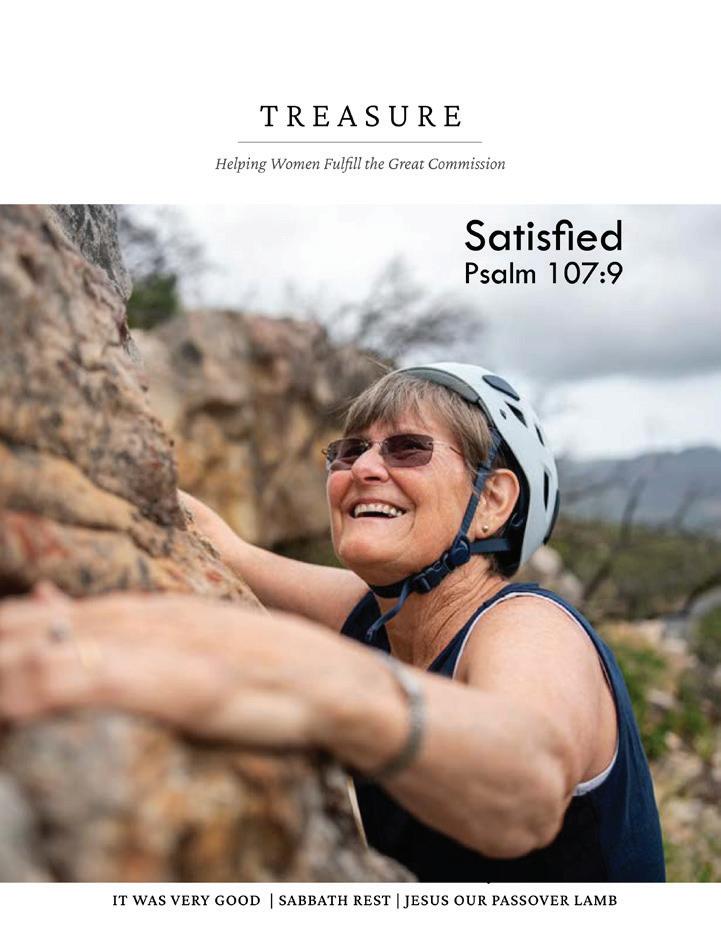
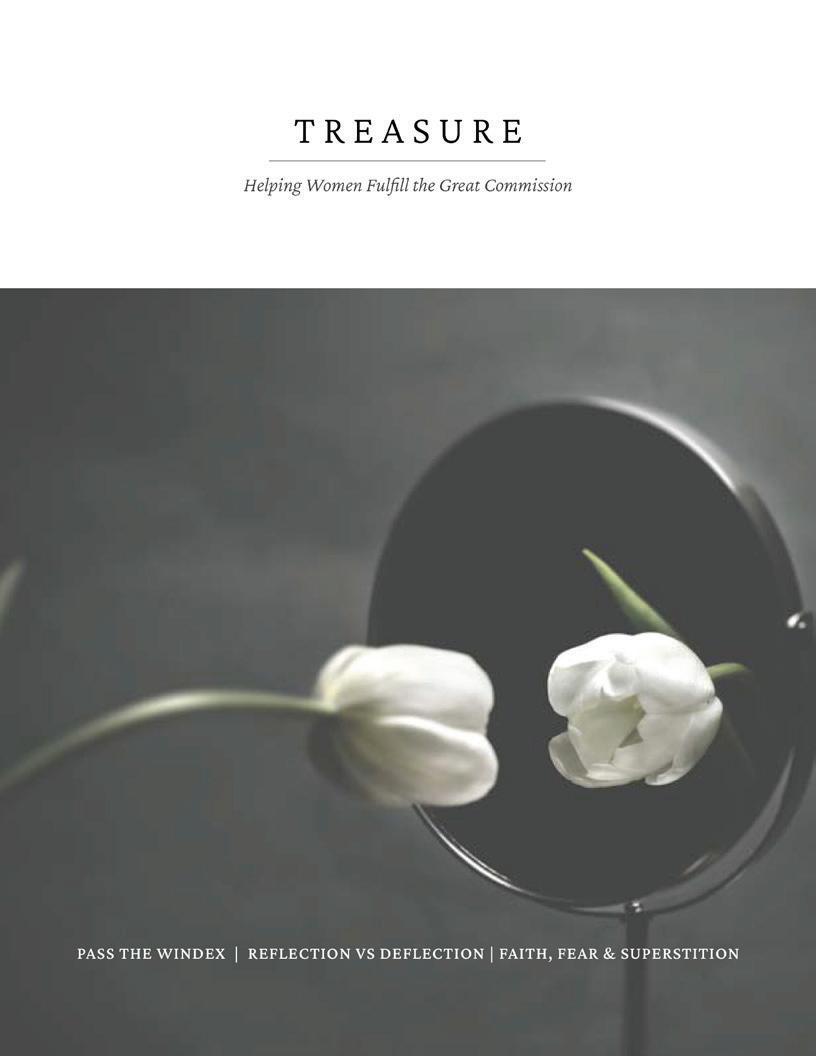
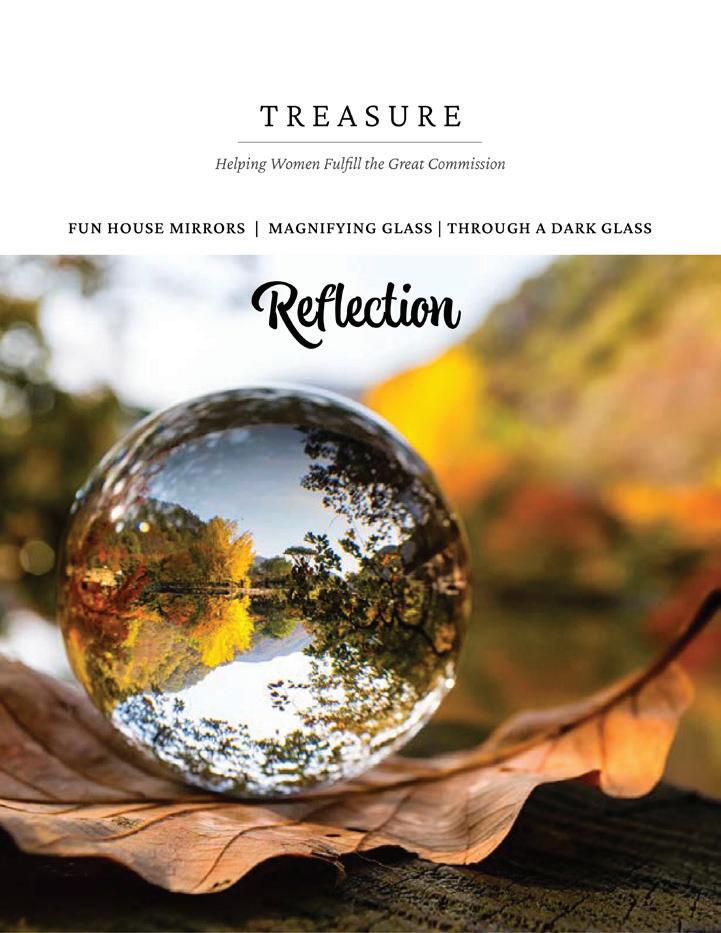
BY BRENDA EVANS
In my dream, the lady offered to sell me a halo — special order from a thin catalog. She held it up for me to see the title: Christian Paraphernalia. “Cheap, too,” she said. “Halos are on sale today.”
“No thanks,” I said. “I’m in a hurry.”
“You sure? Sale ends today.”
“I’m sure. I need to hurry and catch my flight to Toronto.”
Chaotic! That’s how my dreams are. For most of us they make no sense. I was not in the market for a halo, nor was I on my way anywhere that day, certainly not Toronto. I’ve been there. Toronto is nice, and I may go again, but not today. The halo? Who knows what that was about — maybe my desire (or need) to be more angelic or heavenly. I don’t know. Besides, the theology on halos is sketchy, to say the least.

The dream was late last summer, and many things were chaotic. A friend fell and crushed her femur in three places. Another shifted from a nursing home to the hospital, barely responsive. The brother of a Life Group friend died without the Lord. A neighbor was in Alaska for two weeks and asked me to keep watch on her house — just in case. Just in case, what? I’m not a good guard dog. I scare easily, am afraid of the dark, and can’t even bark.
I also had taken on three additional writing deadlines. My brain felt foggy, and my right eye was clouded with cataracts. My left eye was in treatment for wet macular degeneration, so that eyeball was getting a series of shots retina specialists award to eyes like mine. My husband was facing a risky but necessary colonoscopy at 85. A surgeon had just told one of our grandsons he would soon face his 17th surgery.
Internationally, war erupted — Ukraine, Israel, Gaza, Hamas, Hezbollah. In Sudan, where civil war raged, the population faced “extreme levels of food insecurity.” Near-starvation, to say it clearly, there and elsewhere. Nationally and locally, elections loomed with ridiculous name-calling, accusations, and counter accusations. Who was telling the truth? Who knew?
Many things fell apart those weeks. Yet, in my heart of hearts, I was aware of even worse things falling apart for other people — deaths of husbands, wives, and children. Relatives rejecting the Lord. Homes and lives lost in floods, hurricanes, fires. It was worse for many. Yet my chaos and my friends’ chaos shook me. It was like four lines from William Butler Yeats’ poem “The Second Coming”:
Things fall apart; the centre cannot hold, Mere anarchy is loosed upon the world, The blood-dimmed tide is loosed, and everywhere The ceremony of innocence is drowned.
In those late summer days, Yeats seemed right. He should know, shouldn’t he? An Irish poet, he wrote his poem in 1919 in the aftermath of World War I. In addition, his homeland teemed with political unrest and armed rebellion while trying to break from British rule. Yeats’ pregnant wife had recently (and barely) survived a grave illness from Spanish flu. Yeats’ life must have seemed utter chaos.
His world was whirling, flailing, falling apart. “Turning and turning in the widening gyre…the centre cannot not hold,” he
wrote. By the end of his 22-line poem, his “second coming” was dismal. Not Jesus’ second coming but an alarming monster with a lion’s body and a man’s head, a “rough beast, its hour come round at last… slouching towards Bethlehem.”
Most scholars agree Yeats means the Antichrist.
The enemies of my peace are “smoldering stumps,” not dangerous “firebrands,” Isaiah said.
Not that Yeats was a Christian. Though a nominal Protestant early in life, he eventually became enmeshed in mysticism, spiritualism, and the occult.
Though the poem is dark and troubling, without hope, it reminded me of three things I had ignored. One, the trouble I stewed about for days was mostly small compared to others suffering unimaginable losses. Mine were splinters while others had swords thrust into their sides.
Two, my fretting and worrying were mostly about me, my discomfort, my self-focus, my resentment, my fear. I wanted peace and tranquility and no problems.
Three, I had Isaiah who understood chaos. He knew how things fall apart. He knew the good and the bad and left me messages. Sometimes, Isaiah pointed a bony finger and waggled his tongue at me for my worry and fear. Other times, he poured oil in my wounds and smeared it all over the sore places of my mind and soul.
Within days of Isaiah’s chidings and encouragements, the Lord also sent four-footed animals to our backyard to visually remind me He was holding all things together (Colossians 1:17).
White-tailed deer came first in ones and twos. Then a doe with tiny twin fawns, still spotted. Soon another doe and her twin fawns. The second set of twins were a little older and with fewer spots. Next, the two does and their twins all arrived on the same day.
Then one Sunday afternoon — the day 16 family members came for a birthday celebration at our house — the does and their twins brought others, so nine deer grazed on our green grass near the creek. After eating, they lay around in the grass and chewed their cuds as if at home.
Something good and right was happening in our backyard and in God’s created world. The Lord gave me comfort and pleasure in those unexpected deer. And something good and right was happening inside our house, too. Sixteen members of the Evans family hugged and laughed, blew out candles, talked loudly, and celebrated with salty snacks, birthday cake, love, and peace.
Before breakfast the next morning, I dove back into Isaiah. Sunday had been a glorious day. Monday was too. Isaiah 7:2-4 reminded me that when chaos comes, and my heart shakes with fear like leaves in a wind, I can stand firm without fainting. The enemies of my peace are “smoldering stumps,” not dangerous “firebrands,” Isaiah said. I gained a fresh infusion of joy and gratitude and hope.
Yes, some things had fallen apart, but Yeats was wrong — the Center still held.
Often, between the womb and the tomb, chaos happens; things fall apart. They have in the past. They will in the future. But that Monday morning, I remembered our Center, our Savior holds. Despite the Lord allowing “the bread of adversity” and “the water of affliction,” He will not hide from us. Our eyes will see Him, and our ears will hear Him say, “This is the way, walk ye in it” (Isaiah 30:20-21). Those who don’t cling to the Center want to hear “smooth things” and “illusions” (30:10). We who
trust the Center want to hear only Him and cling to His way — the Way Everlasting. He is gracious, “our arm every morning” and “the stability of our times” (33:2,6).
Someone told me Leonardo da Vinci once said, “When you put your hand in a flowing stream, you touch the last that has gone before and the first of what is still to come.”
A rushing stream. What an image of life! The Ammonoosuc River in the White Mountains of northern New Hampshire began in The Lake of the Clouds on the western slope of famed Mount Washington. Forty miles later, it flowed a few hundred yards from our front door in Littleton, New Hampshire — rushing, rocky, clear, and lovely.
Life is like that. We dip our fingers into its rushing waters not knowing what is still to come. Will the waters of our lives be crystal clear and lovely or rocky and frightening? We don’t know. What we do know is if things fall apart on those rocks or in that rushing water, our Center, our Stability, our Way Everlasting will hold.
Yes, our Center will hold. He always has. He always will.
Always.
About the Writer: Brenda Evans lives and writes in Ashland, Kentucky. You may reach her at beejayevans@windstream.net.

BY DAVID BROWN, CPA
A song lyric from the movie White Christmas questions: “What do you do with a general when he stops being a general?”
Many people facing retirement may ask a similar question. After working for 40-45 years at a single, particular thing, what do you do in retirement? If your retirement income is insufficient, and you are physically able to work, you may seek part-time employment. However, for those who do not need additional income and do not want to work, it may be challenging to find something meaningful to do.
Here are some suggestions. Many states allow those over 65 to take college classes for free or at a greatly reduced cost. Perhaps you have always wanted to study a particular subject totally unrelated to your previous work. Just call it curiosity.

You could volunteer to help in many arenas. Perhaps start with your church and ask your pastor if you are particularly suited to serve in a needed ministry. Visit older seniors, those who are ill, or the homebound. Or volunteer in your community. Every community has unmet needs where you can help. Some recent retirees serve the senior community through Meals on Wheels. Though we live in a wealthy nation, many people (and many times children) still go hungry. Other seniors volunteer for their local voting precinct or other civic opportunities.
If you are a professional, consider helping people as you serve in your profession. Volunteer to host or help with a Bible club in a school (yes, even public school) and impact

young lives. (You can get more information on these types of ministries from Child Evangelism Fellowship.) Your presence will give children a biblical example of what a grandparent is supposed to be like. Retired couples can also mentor younger couples by having meals together or having them over for dessert.
Numerous studies reveal staying active and being part of a community will help you live a longer, happier life. And your life experience can be a benefit to others. When you are younger, sometimes you “don’t know what you don’t know.” However, by retirement, you have experienced many things younger people have not, and you can share your knowledge.
You may be retired, but you’re not dead yet! So, continue to work to expand the Kingdom.
About the Columnist: David Brown is director of Free Will Baptist Foundation. To learn more about the grants program, visit www.fwbgifts.com.
• Go back to school! Take free or reduced college classes in an area of interest.
• Volunteer at church and in social programs and civic opportunities.
• Visit the sick and homebound.
• Help with a school Bible club.
• Use your previous profession to help others.
• Mentor the younger generation.
BY JUSTIN FEIGHT
Imagine vacationing in Germany and finally accomplishing one of your bucket-list items — driving on the Autobahn. As you drive, you move at increasing speed, enjoying the freedom of the experience. Out of nowhere, your car loses speed, sputters, and dies as you coast to the side of the highway.
You’ve just run out of gas on the Autobahn.
After a few minutes, an officer pulls up and approaches your vehicle. To your surprise, instead of helping you out of your predicament, he issues you a costly ticket for running out of gas. You learn running out of gas on the Autobahn is illegal and considered a dangerous and preventable error.
In the same way, failing to reach our community with the gospel is a preventable, costly error — one we should not hastily excuse away.
For the past few months, one of Jesus’ parables has been at the front of my mind. It is found in Matthew 21:28-32. Much happens in this passage of Scripture, but I want to focus on verses 28- 31. A man had two sons and asked them to go work in his vineyard. One responded with an immediate no but then repented and did the work his father requested. The other said yes to his father but never went to work. In verse 31, Jesus asks those listening, “Who did the will of his father?”
When we reflect on this passage, we will realize we’ve all been guilty of being the second son. I know I have. However, thanks to God’s grace and our free will, we can choose to be like the first son who repents, turns from error, and fulfills his father’s request.

What does this look like in the context of obeying God’s command that we reach our communities with His truth? How do we reach them?
The best way to reach our community is to first be a student of our community. Our denominational leaders have done a fantastic job of providing resources to learn about those living within a certain community radius and equipping us to meet their needs. As a church planter in Jamestown, North Dakota, I can use these tools to quickly tell you the demographics and psychographics of our community. In fact, when we first arrived in Jamestown, people were impressed with how much I already knew about their city.
However, while I knew many of Jamestown’s statistics, I didn’t know much about its real culture. When a church fails to understand the culture around it, it misses opportunities to minister. Just because certain practical decisions or ministries have worked well in one community does not mean they can or should be replicated in another. Learn about your neighbors, talk to them, attend community events, and simply watch and listen. You will be surprised by what you can learn about your community and its needs just by being a part of it.
Though it is an important first step, knowing your community isn’t enough to effectually reach it with the gospel. You must also serve your community.

Sounds straightforward, right? Know your community and serve your community. Yet many believers struggle to serve their community. They consistently attend a local church but never take meaningful action beyond its doors to engage with those around them.
Since arriving in Jamestown, we have made intentional choices to engage with the community. My wife Allison began volunteering at the local Youth for Christ (YFC), and I accepted a position as a hospice chaplain in the regional hospital. What has come from this? A mother whose son attends YFC is interested in attending our church when we launch. The hospice chaplaincy, a vital, needed ministry in many communities, has allowed me to share the gospel with people, and we have seen them saved just days or hours before their passing.
Failing to reach our community is a preventable error that extracts a high cost.
One gentleman on hospice would yell for “help” every few moments when I first visited him. After a few visits, I told him about the peace that comes from Christ and the assurance of salvation. Want to know what happened? He stopped yelling for help and found peace. I saw him a few hours before his death and told him, “If you are confident Christ has saved you, you’re ready to go, and I will see you on the other side.” He passed two hours later.
Serving in areas like these allows us to minister beyond the traditional church ministries so many of us already do.
Another way we can serve our community is by being present. Show up to events, whether council meetings, school board meetings, sporting events, groundbreaking ceremonies, or community happenings. Showing up speaks to the community, telling them you care. I have many stories about relationships developed from simply attending meetings and events.
I know what you are thinking: “I don’t have time to do all of that.” Many of us are bi-vocational ministers or lay people who have jobs that involve most of our day. We may also have children who need our time and care. Can I repeat a popular saying I’m sure you have heard hundreds of times? You make time for what you really care about. God has given us talents and abilities. Through our willingness to do more, those talents can be used to reach others for Christ.
I am not saying community involvement will always result in excellent church growth or countless salvation experiences. But failing to reach our community is a preventable error that extracts a high cost. Simply being willing to know your community and serve it faithfully will lead to gospel opportunities. Gospel opportunities lead to seeds being sown and potential opportunities to water and reap gospel fruit.
About the Writer: Justin Feight is the lead church planter at Embark FWB Church in Jamestown, North Dakota. He and his wife Allison have two children with a third on the way. To learn more about their ministry and follow their church planting journey, visit fwbnam.com/feight.
Bozeman, MT — Seth and Lacey Price (Sparta, Tennessee) have been approved to serve as lead church planters to the city of Bozeman, Montana. Both Seth and Lacey grew up attending Bethel FWB Church in Sparta. Seth answered the call to preach in 2012, and the Prices have been serving in ministry together since their marriage that June. Most recently, Seth pastored Cookeville FWB Church, and Lacey taught special education in White County.
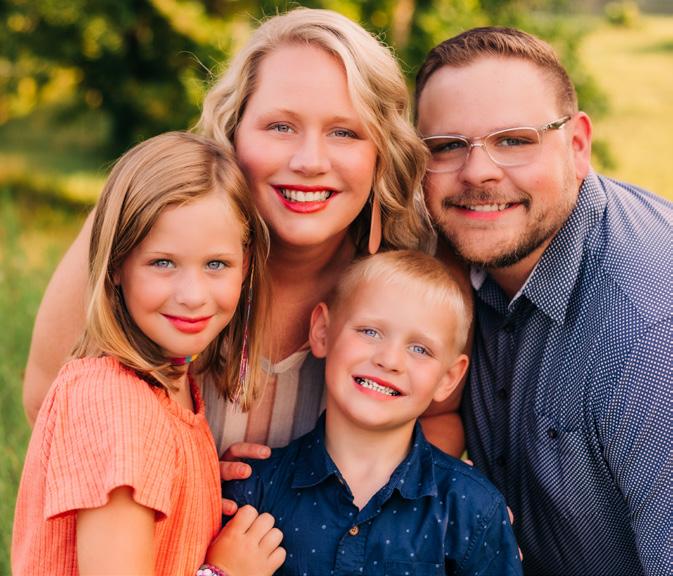
one Free Will Baptist church exists in the entire state of Montana: Summit FWB Church, a NAM plant in Missoula led by the Hampton and Lindsay families.
To combat this isolation and minister strategically in the region, the Prices plan to partner with Summit Church to form a thriving fellowship of Free Will Baptist churches in the state while also reaching the community of Bozeman with the gospel.
Bozeman is the fastest growing micropolitan city in the United States. It’s known for a thriving economy, outdoor recreation opportunities, and a vibrant community. However, like most of the Pacific Northwest, it remains a largely unreached mission field with evangelical Christians representing less than 10% of the population.
One of the primary obstacles church planters face in the Pacific Northwest is isolation. Often, church planters work alone in highly secular areas with little gospel presence or extended church community. For example, currently only
Please pray for the Prices and their children as they begin fundraising and transitioning to full-time ministry in Bozeman. Ask God to use both Montana church plants to save the lost and transform their communities with the hope of Christ.
Champaign, IL — North American Ministries is happy to announce that Jeremy and Rebekah Huff have been approved to serve as associate church planters in Champaign, Illinois. The Huffs will minister alongside lead planters Ed and Rachel Goode at Bridge FWB Church, a joint project with the Illinois State Mission Board. Jeremy and Rebekah have three young sons – Hayden, Hudson, and Harrison.
The Huffs are graduates of Southeastern Free Will Baptist College. Since 2019, they have been actively ministering at Great Bridge FWB Church in Chesapeake, Virginia, where Jeremy served as the student pastor and worship leader and Rebekah as the children’s ministry director. The couple also taught and worked in the church’s associated school, Great Bridge Christian Academy.
Both Jeremy and Rebekah have family ties to NAM and IM, connecting them with church planting ministry. Jeremy has two brothers who are former NAM church planters, Jason and Jonathan Huff, and Rebekah is the sister of teammate Rachel Goode and the daughter of former IM missionaries Ken and Jayne Cash.
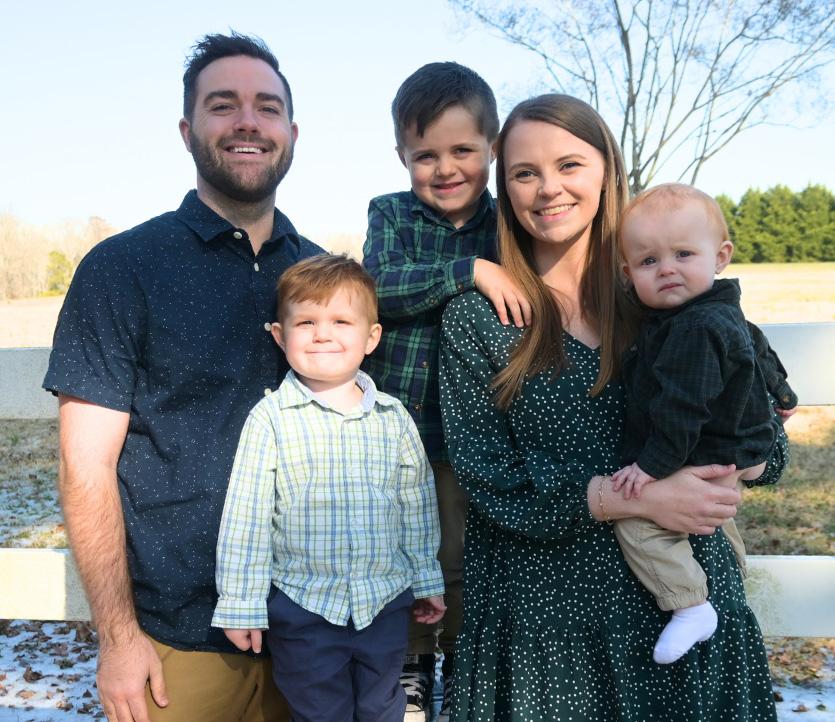
Jeremy and Rebekah Huff and family
One of the fastest-growing cities in the state, Champaign-Urbana is home to over 200,000 people and more than 50,000 college students from the University of Illinois, which houses the largest proportion of international students at any college in the US. In addition to the significant number of unreached students, only 30% of Champaign’s population identify as “religious” at all, giving Bridge FWB Church countless gospel opportunities to pursue and many needs to meet through their ministry.
Please pray for the Huffs as they begin fundraising and move to Illinois in the coming weeks. Ask God to provide for their needs and grow their ministry as they work to make the real Jesus impossible to ignore in Champaign.
Congratulations to Ardmore, Oklahoma, church planters Cody and Tori Matlock on the birth of their son Caisson James! All are doing well. Please help us welcome Caisson to the NAM family and pray for the Matlocks as they begin life as a family of three.
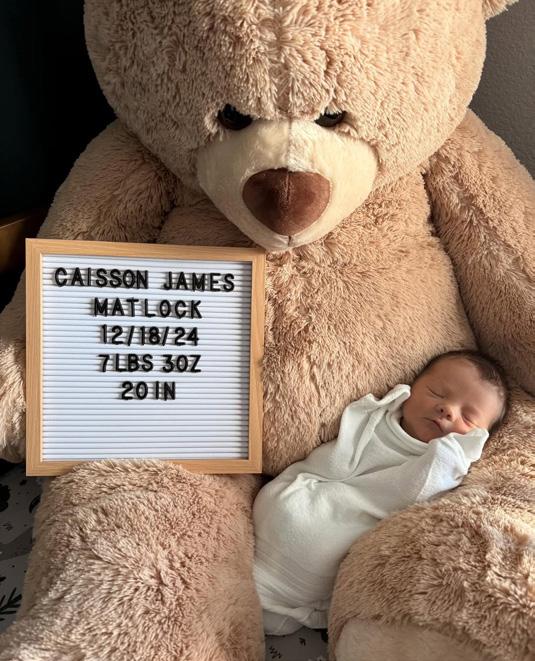


Each year, we are blessed by your financial generosity to North American Ministries. In November alone, Free Will Baptist churches and individuals gave over $100,000 to the Mission North America Offering fund! Combined with recurring MNA and general fund donations, your gifts brought our yearly offering total to just over $683,000 (and counting).
Thank you for continually supporting the work of NAM, church planters, chaplains, and countless other ministries through giving. We could not accomplish what the Lord has called us to do without you.

Unete a la visión de
BY JOSH BENNETT
Ministry is a journey that combines challenges with unparalleled rewards, deeply enriching those who embark on it. For more than 15 years, my life as a church planter has been marked by a profound sense of purpose and collaboration, allowing me to witness the transformative power of teamwork in ministry. Along the way, I’ve been fortunate to be part of two phenomenal ministry teams, each contributing uniquely to this remarkable journey.
Our first undertaking was planting The Springs Church in Marana, Arizona. This endeavor began in the summer of 2010 with my wife, Ashley, and close friends Jeff and Heather Goodman. Together, we ventured into the unknown, driven by a shared vision and a strong sense of community. As our journey unfolded, we had the pleasure of welcoming a young man named Hiram Ramirez to our team. His arrival brought fresh perspectives and new energy, underscoring the importance of evolving and adapting to new dynamics within a team.
The second chapter in my ministry journey involves the establishment of Awaken Church in Tifton, Georgia. This ongoing work has been an exciting and enlightening endeavor. I’ve had the privilege to collaborate with Shane and Jamie Suggs, who joined us in the early stages. Their insights and commitment have been invaluable. Alongside them, we welcomed Matthew Grady Calhoun, an early team member whose wife Alyssa has recently become an integral part of our team. More recently, Caleb and Cadence Franks have joined us as Next Generation leaders, bringing a vision for the future and an enthusiasm that inspires both young and old. Through these experiences, I’ve learned invaluable lessons from each team member, and the depth of camaraderie we’ve built has taught me the true essence of leadership in ministry.
Strong team chemistry is not just a ministry asset; it’s the lifeblood that fuels effective collaboration. Healthy team dynamics don’t happen by accident or without effort. They require intentional cultivation through thoughtful engagement. Learning to “hang with your team” is about investing
time and energy into fostering robust relationships, pivotal for sustaining a healthy, vibrant ministry team.
While it’s not necessary to become best friends with all team members, fostering meaningful relationships with those with whom God has called you to serve is paramount. Many ministry teams struggle because they fail to invest in these crucial social connections. In our teams, we’ve always prioritized finding common ground outside of work—whether fishing, enjoying sporting events, playing board games, or watching the latest movies.
These activities serve as platforms to deepen relationships and build trust. By creating opportunities to socialize, we forge friendships that transcend the boundaries of work, allowing us to operate more cohesively as a team devoted to our mission. Personally, these social gatherings have been rich ground for discipleship, offering both mentorship and the strengthening of community ties.
Like many church leaders, I’ve discovered the church office can often be an environment filled with distractions, particularly when leading a team. Instead of begrudging interruptions, I’ve embraced the concept of an open-door policy — keeping my office an inviting space with ample seating for those spontaneous yet meaningful interactions.
My mindset shifted significantly after a conversation with a fellow pastor who emphasized the importance of viewing the office primarily as a space for team collaboration rather than just an individual workspace. This change was liberating, allowing me to focus on connecting with my team. Now, I cherish those moments of informal dialogue, where topics range from life and sports to church matters. These interactions aren’t time wasted but opportunities to build connections that organically strengthen the team’s fabric. Additionally, shared experiences such as attending conferences, regular lunches, or even routine errands like Sam’s Club runs further bolster our professional bonds.

Strong team chemistry is not just a ministry asset; it’s the lifeblood that fuels effective collaboration.
Understanding that family plays an essential role in our team members’ lives, we’ve embraced the inclusion of family in our team dynamics. Organizing activities such as playdates, double dates, and special events like our annual staff Christmas party contribute significantly to strong team chemistry. The Christmas party is particularly special as an occasion that elicits joy and anticipation months in advance. It features thoughtful gift exchanges, a delicious dinner, and extended fellowship, setting the perfect environment for strengthening familial bonds and reinforcing our shared mission of making disciples.
Ultimately, mastering the art of “hanging well” with your team lightens the burdens of ministry. It creates a camaraderie that breathes life into our collective ministry efforts. Enjoying each other’s company translates into a more seamless work experience, where collaboration is second nature. The genuine success of such team dynamics is evident when I receive a call from a team member, and it’s seamless to interchangeably discuss life or ministry — a testament to the true essence of community we’ve cultivated and cherish so deeply.
About the Columnist: Tifton, Georgia, native Josh Bennett is the lead planter at Awaken FWB Church in his hometown. He and his wife Ashley have three children: Saywer, Finn, and Harper. To learn more about the Bennetts and their work, visit fwbnam.com/bennett.

BY JAIME HERNANDEZ
I was in my office printing the final pages in my logbook for this honorable task the Lord Jesus has entrusted to me. I was reflecting on the wonderful weekend we had just experienced, and at that moment, a message arrived on my phone. It was our dear sister Bethany Douglas from the North American Ministries office. With great enthusiasm, she shared how blessed NAM Director Dr. David Crowe felt for having participated in the same celebration. “Wow!” was all I could express.
What happened that weekend?
Saturday, December 14, 2024, we celebrated the graduation of the 2024 class from the Hispanic Bible Institute. Seven young people from four states enrolled to receive intensive biblical, theological, and ministerial training. Allow me to share a brief overview of each.
Isaac and Susie Hernandez came from Primera Iglesia Bautista Libre in Elkhart, Indiana. Isaac has always been a great support to his father and pastor, playing instruments, leading worship, helping with the youth ministry, and participating actively in the maintenance and remodeling of his church. Susie speaks little Spanish, but in her initial presentation, she said, “I am here to get prepared to serve God alongside my husband,” and she achieved high grades throughout the course!
Aaron and Jehdiah Martínez came from FWB Iglesia Nueva Vida in Rupert, Idaho. Both are pastor’s children, and they have been fully involved in all areas of ministry in their church from a very young age: playing instruments, leading worship, discipling young people, teaching children, and promoting their church on social media. They have done everything with excellence.

Rafael Gadiel Martínez came from FWB Iglesia Nuevo Comienzo in Catoosa, Oklahoma. Alongside his parents, who are missionaries, Gadiel has served in various ministries within the church, playing instruments, leading worship, and preparing other young people to do the same. With his great talent for photography, Gadiel captured magnificent moments throughout the course.
Alexis J. García came from FWB Iglesia Fe, Esperanza, Y Amor in Bartlesville, Oklahoma. His parents brought him to the church when he was three years old, and they have remained there to support their pastor. Alexis has also served from a very young age in the worship ministry, as a youth leader, and in any task needing to be done in his church. He participated enthusiastically in every class, trying to absorb as much as he could from each professor, always thinking about sharing it when he returned to his church.
Daniela Hernandez came from FWB Iglesia Conquista in Greenville, North Carolina. From a very young age, she became a great collaborator in her father’s ministry. Besides leading worship and teaching young people and children’s Sunday School classes, she has always shown great initiative in evangelizing and discipling new believers. To this day, she plays an important role in the church and institute office work.
They are only the first fruits of this magnificent work the Lord has replanted. Without a doubt, these young people are part of a new generation of ministers God will use powerfully in the future. They have all returned to their churches and are willing and ready to serve wherever the Lord needs them.
We want to express our deep gratitude to the pastor-teachers who dedicated their time to come and teach. We also express gratitude to NAM leaders David Crowe and Rick Bowling, who did not give up until the Institute was restarted; to Pastor Gene Williams and Parkers Chapel FWB Church (home to the Institute), for the love they demonstrated every day of the course; to my wife Abi, who with the tenderness of a mother, often prepared delicious meals for students and professors.
But our gratitude also extends to all the pastors and members of each church within our great Free Will Baptist family, who have been sensitive to the Lord’s voice to support this heavenly vision with their prayers and offerings. Yes, each one of you did it!
Our mission continues. We have already begun working to recruit students for the class of 2025. And we can all be part of this mission the Lord has given us to prepare Hispanic laborers to serve in His harvest. So, when we stand before His presence, we can hear Him say: “Well done, thou good and faithful servant.”
About the Writer: Long-time NAM church planter Jaime M. Hernandez is the director of the NAM Hispanic Bible Institute at Parkers Chapel FWB Church in Greenville, North Carolina. In addition to overseeing the Institute, he and his family are planting Iglesia Conquista at Parkers Chapel. To learn more, visit institutobiblicohispano.com.
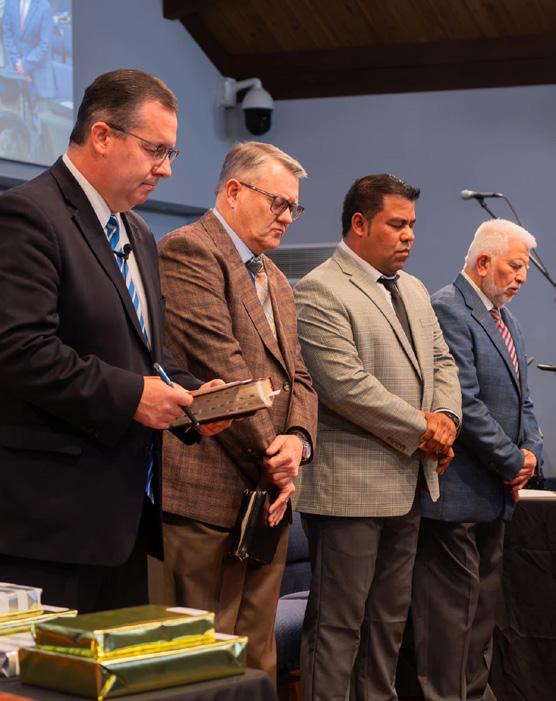
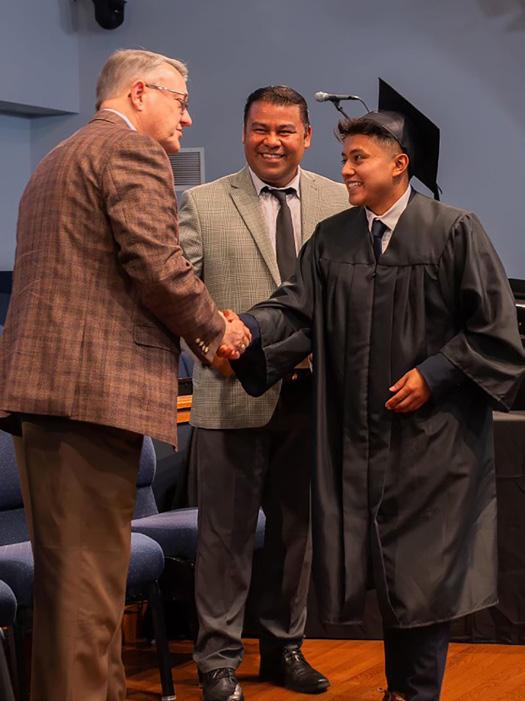
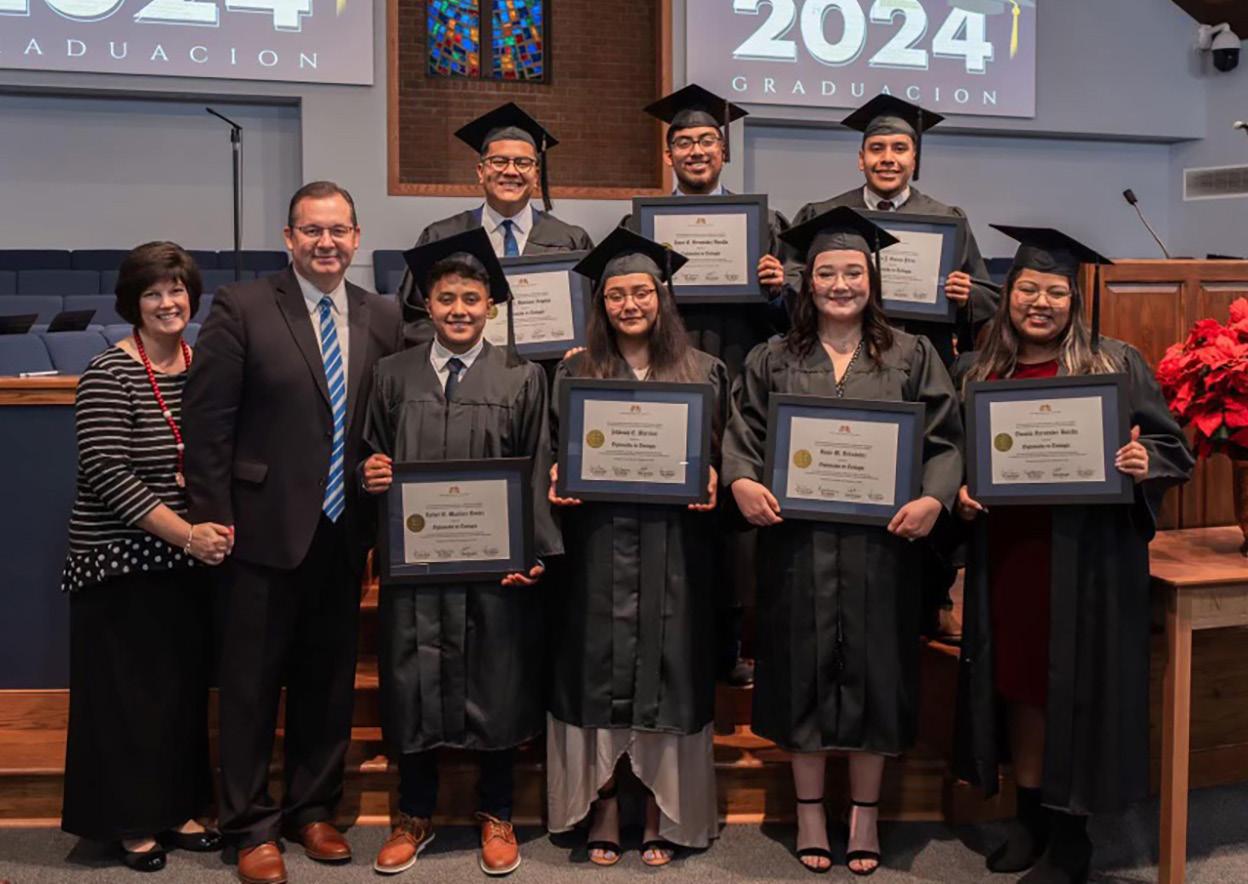
Three ways you can support the Hispanic Biblical Institute:
• Make a recurring offering.
• Sponsor a student.
• Provide a scholarship.
Contact FWB North American Ministries for more information: fwbnam.com
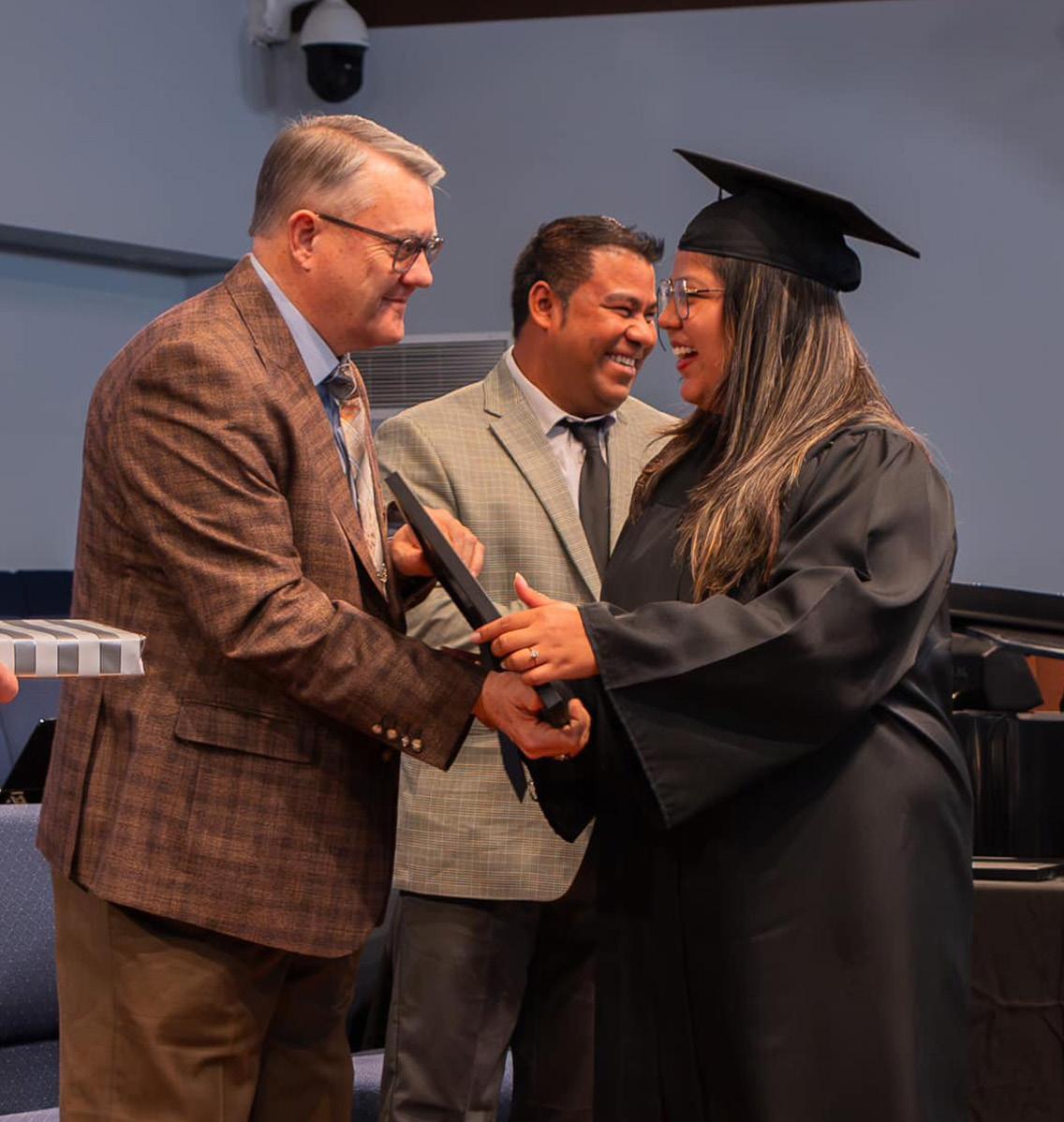

Parents have the awesome opportunity and privilege of educating and discipling their children in all matters of life. One area often overlooked is teaching children how to handle money responsibly. To be fair, some parents have conversations about money, but most are reluctant to teach good money habits and financial education. Why? Perhaps it is because they simply don’t think about it, don’t feel they have adequate knowledge, or struggle to handle money themselves.
Parents must remember their kids are watching them and will form behaviors and attitudes about finances based upon those observations, even if you never say a word. We do not do our children any favors by neglecting to teach them about money. By making this a priority early on, parents can help their children avoid major money mistakes in the future.
The early years are the best time to start teaching kids about handling money. A study by Dr. David Whitebread and Dr. Sue Bingham at University of Cambridge revealed that children form money habits by age seven. Teaching children about money from a young age equips them with skills to navigate the financial world confidently. By introducing practical lessons early, parents can help kids build healthy money habits that last a lifetime.
The best place for parents to start teaching their kids about money involves basic stewardship lessons:
BY CHRIS COMPTON
earning money, the power of giving, spending wisely, and saving for goals.
Earning Money. It is okay to give your children money, but don’t give them money for everything. Teaching kids money is earned helps them appreciate its value. Consider two suggestions: 1) assign chores and pay them for their work; 2) allow them to be an entrepreneur and come up with new jobs beyond their normal chores and pay them for those. Who says work can’t be fun?
The Power of Giving. One of our greatest privileges as Christians is giving back to God. Parents not only need to model giving, but they also need to teach the importance of generosity. Do this by encouraging kids to set aside a portion of their money (allowance, earnings) for charitable giving. Each time you pay them, help them set aside money in a jar or envelope to give at church or to a missionary. Let them give the money, so they will experience the joy of generosity.

Spending Wisely. Kid’s love to spend money like everyone else. Let them. Help them set aside a certain percentage of the money they earn to spend on something they want. At the same time, help kids distinguish between needs and wants, the value of things, and how to set up a budget.
Saving for goals. Children need to understand the concept of saving. As they earn money or get money, help them put away a portion for savings either in a jar, envelope, or savings account. This will teach them to save regularly. Encourage them to save for a particular goal like a toy or gadget they want. Once they reach the goal, celebrate by taking them to the store and letting them purchase the item. As they get older, help them set bigger savings goals like a car or college funding. Begin to teach them about compounding interest and other types of investments.
Our goal should be to keep kids from entering adulthood with no idea of how to handle finances wisely. Before long, our kids turned adults will begin making important financial decisions that will affect the rest of their lives.
Teaching kids about money doesn’t have to be complicated. By incorporating simple, practical lessons into everyday life, parents can lay the groundwork for financial literacy. These early lessons will empower children to make informed financial decisions as they grow, setting them up for a secure and successful future.
About the Writer: Chris Compton is CFO for Richland Ave Financial. He graduated in 2007 with an M.A. in Bible Exposition from Columbia International University. A 1998 graduate of East Tennessee State University, he has over two decades of administrative and financial experience in varied fields, along with seven years in pastoral ministry.


BY JOHN BRUMMITT
What is generational wealth? Generational wealth is a relatively new term though the principles have been around for much longer. Generational wealth refers to assets passed from one generation of a family to the next, whether money, stocks, real estate, private business, or alternative investments. While the term is new, the concept has existed for centuries, if not millennia. Proverbs 13:22 notes “a good man leaveth an inheritance to his children’s children.” Job 42:15 tells us Job gave an “inheritance among their brethren.”
I also believe generational wealth should include more than money. Our greatest blessing is our faith in Christ, and passing it on to the next generation is more important than any financial asset. Yet the process involved is closely related.
First, decide how you will create, build, or acquire assets to pass to the next generation. Are you saving for retirement, amassing real estate holdings, or building a business? You must start the wealth creation. Individuals who want to pass on generational wealth start well before it is time to pass it on. In our walk with Christ, if we don’t have and build a personal relationship with Him, we have nothing to pass on.
As your assets grow and you execute your strategy, it is important to include the next generation to whom you will leave those assets. This is where the three-generation rule comes into play. An old maxim says wealth does not last beyond three generations. A study by the Williams Group conducted over a 20-year span, involving 3,200 families, found that seven in ten families end up losing their fortunes by the second generation, and nine in ten by the third.
In Deuteronomy 6:2, we are instructed to pass all we have learned to our children and grandchildren. This is the key to passing along everything of value to subsequent generations. If you spend all your time and effort to build assets but neglect to share the how and why with the next generation, they will not have the same skills or vision to keep it going.
And our responsibility doesn’t end with our children, but our children’s children, or the last generation with whom we have contact. Job 42:16 tells us Job was able to see four generations. Just as we learn and grow in our relationship with Christ, we learn as we build our financial assets. Teaching and explaining what we have learned about finances, wealth, and generosity
to the next generation allows them a head start and keeps them from making the simple mistakes that quickly lead to the three-generation rule.
Generational wealth is important. How it is done can help or hurt the next generation. The time to pass wealth doesn’t have to be upon death. While this is often the case, handing over generational wealth while you are still around to instruct and guide — being very careful not to micro-manage — could prove beneficial to the next generation.
Also, challenging them to teach future generations will break the three-generation rule. Generational wealth has longterm effects on the financial stability of your family and the ability of your family to take advantage of lucrative opportunities. However, if wealth is the only asset passed to the next
When you run your race with confidence, you will finish well. But the race isn't over at retirement. Miles still lie ahead. Ensure your retirement will provide the necessary resources to run your best race for years to come. Let us help you develop a retirement plan that will take you to the finish line!
generation, extravagance and family disagreements could deteriorate the assets quickly.
At the end of the day, passing down our faith in Christ and His Word is the most essential asset you can share. And faith will help those who follow you manage their finances with a biblical understanding.
Faith will help those who follow you manage their finances with a biblical understanding.
About the Writer: John Brummitt became director of Richland Ave Financial in January 2016. He graduated in 2011 with an MBA from Tennessee Tech University. A 2004 graduate of Welch College, he has been with Richland Ave Financial since spring 2006. Learn more about retirement options: www.RichlandAveFinancial.com.


BY ROBERT POSNER
“Blessed is he whose transgression is forgiven, whose sin is covered.
Blessed is the man unto whom the Lord imputeth not iniquity, and in whose spirit there is no guile” (Psalm 32:1-2).
“Complete honesty? You have got to be kidding me!”
The thought of being completely honest with others is horrifying to many of us. “If anyone knew what I have done, no one would want to be around me,” we think. While the psalmist proclaims complete honesty brings freedom and joy, we struggle to believe it is true. We fear complete honesty will lead to rejection and the loss of relationships. These are the lies we tell ourselves.
Sometime back, I sinned in a way that cost me my ministry and nearly my marriage. For days, I fought the shame and self-
hatred alone, in the privacy of a room at a friend’s home. At the advice of a friend, I built up the courage to attend a recovery group for my sin. I assumed I could sit there, not tell anyone about my sin, listen, and learn.
So, there I sat in my misery, shame, guilt, and sadness amid a group of men who struggled with the same sin. Their complete honesty made me feel even more uncomfortable; my immediate response was to judge them, pointing out — in my own mind — how sick they were. They clearly did not know Jesus. My sin was nothing like theirs.

After several weeks of attending the group, keeping everyone at arm’s length and carrying on shallow conversations, I finally gave in and shared it all in complete honesty. They listened intently and were gracious in their response. A wave of grace, freedom, and joy washed over my soul. Charles Spurgeon was right when he said, “It does not spoil your happiness to confess your sin. The unhappiness is in not making the confession.”
What is complete honesty? How do we confess?
The first step of complete honesty begins with confessing things to me. I must confess my sin is my fault. Sure, others may have acted wrong towards me, hurt me, and abandoned me, yet it is my sin I must own. Others may have planted seeds that circumstances and events fertilized, but I am the one who allowed sin to grow. I need to tell myself this truth. It is painful but true.
When I identify others as the fault of my sin, I am powerless to change my own situation and to find victory. Therefore, the first step of complete honesty is confession of my sin, in all its ugliness, to myself. Then I am ready to take the next step towards a clean heart, forgiveness, and joy.
The second step of complete honesty is confessing my sin to God. My confession is not because He doesn’t know already, for there is nothing God does not know. He knows all my sins before I do and before I even admit them to myself. Confession is the process of “agreeing with that which is true.” Throughout God’s Word, He makes it clear He created humanity for holiness and purity and to reflect His image.
So, when I confess my sin to God, I agree with Him that my thoughts, motives, and/or actions were unholy, impure, and contrary to His image. It is in that agreement that I can once again walk truthfully with God (Amos 3:3). If I do not confess my sin to God, I find myself walking in shame, guilt, and loneliness. Saint Augustine put it this way: “In failing to confess, Lord, I would only hide You from myself, not myself from You.”
“A man’s very highest moment is, I have no doubt
at all,
when he kneels
his
in the dust,
and beats
breast, and tells all the sins of his life.”
— Oscar Wilde
In my complete honesty with God, I experience, through Jesus, a clean heart, forgiveness, joy, and the power of the Holy Spirit to take the third step of complete honesty.
The third step of complete honesty is confessing my sin to those God will use to help me make restitution where needed, seek reconciliation where appropriate, and to build and maintain a life that reflects His image. As Christians, we are called to live in community (Hebrews 10:24-25), but sin separates and seeks to destroy relationships and community. When sin has created separation, it is my responsibility to be completely honest about my sin with others so we may be reconciled (Galatians 6:1-10).
Confessing my sin to a fellow follower of Jesus, one whom I trust, can bring about hope and healing in my relationships and within my community (James 5:16). My honesty with someone else who can pray with me, hold me accountable, and provide guidance empowers me to live in healthy relationships and community.
Are you completely honest? If not, what confessional step(s) do you need to take to develop complete honesty?
About the Writer: Robert Posner pastored two churches for 26 years before a moral failure brought his world crashing down around him. After years of recovery and reconciliation, today, he and his wife Judy are the directors of 24:16 Ministries that helps men build and maintain pure lives and walks alongside their wives as they heal from the trauma of betrayal. Learn more: 2416ministries.org.

In 1920, the Free Will Baptist League was established at the suggestion of John L. Welch. After the League became an official part of the denomination during the 1935 organizational meeting, membership grew rapidly, reaching a high of 125,000 in 1956, according to Damon Dodd's Free Will Baptist Story. Then, in 1962, WNAC agreed to merge its own youth program (including a well-established Bible and speech competition) with the League. The name officially became Church Training Service (CTS) in 1964. In 1972, led by Dr. Malcolm Fry, CTS combined music and art competition with a national meeting called the National Youth Conference. Today, that annual conference and CTS Expo competitive activities continue as the Vertical Three Conference under the direction of D6 Family Ministry.
Why not make your own investment in Free Will Baptist young people with an endowment for D6 Family Ministry?


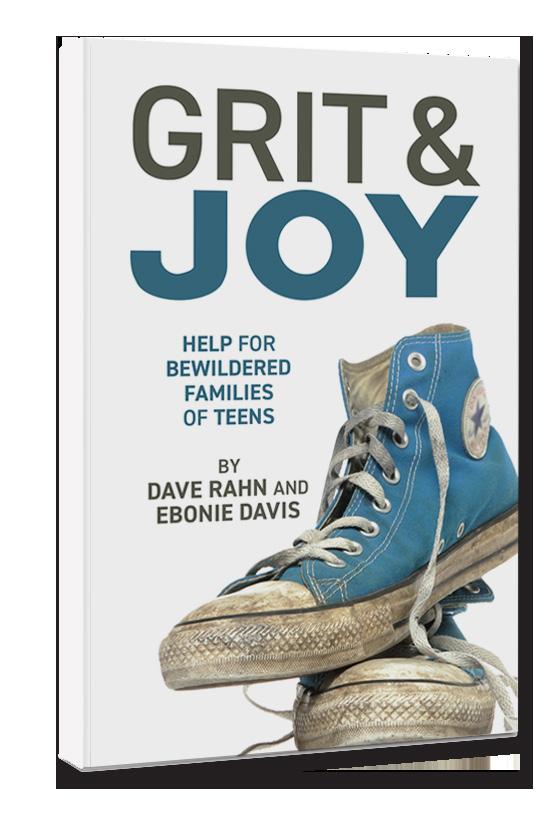
DISCOVER THE WORDS THAT NURTURE FAITH, CONFIDENCE, AND EMOTIONAL WELL-BEING
Raising teens in today’s fast-paced world can feel like an uphill battle—one filled with distractions, stress, and uncertainty. Grit & Joy equips parents and mentors with the tools to help adolescents cultivate a deep, lasting faith. Combining social science, brain science, and biblical wisdom, this book offers practical strategies to disrupt the frantic rhythms of life and replace them with intentional, joy-filled moments. Through engaging stories, insightful research, and guided discussion questions, Grit & Joy helps families pause, reflect, and build authentic faith that withstands life’s challenges. In a world where teens are chasing after the next big thing, this book shows them—and the adults who love them—how to find a joy that lasts.


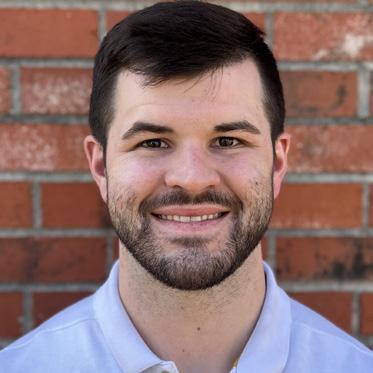
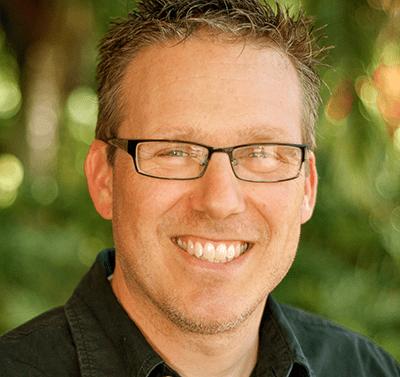
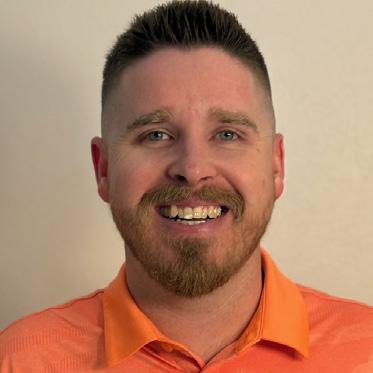

Gallatin, TN — The Free Will Baptist Theological Symposium, hosted by the Commission for Theological Integrity, met on October 7–8, 2024, at Welch College in Gallatin, Tennessee. It featured eight papers and a panel discussion, as well as a chapel presentation in which Dr. Picirilli was gifted with a copy of Teacher, Scholar, and Shepherd: Essays in Honor of Robert E. Picirilli
• Jesse F. Owens, “Thomas Monck’s Apologia: A General Baptist Use of Reformed Orthodoxy to Defend the Trinity”
• Joshua Hunter, “Egyptian Anthropogeny in the Book of Jeremiah? The Imago Dei for a Post-Exilic Israel”
• Alejandro Johnson, “More than Fabric and Leather: Toward a Theology of Clothing”
• Phillip T. Morgan and Matthew Steven Bracey, “Honoring Dr. Robert Picirilli”
• Robert Picirilli, “‘Lift Up One’s Horn’: The Meaning of an OT Metaphor”
• Adam Blehm, “What’s So Wrong With Biblical Counseling?”
• Sarah J. Bracey, “Exploring the Complex Integration of Theology and Psychology”
• Martin Sheldon, “Καρδία: A Fundamental Aspect of Pauline Anthropology”
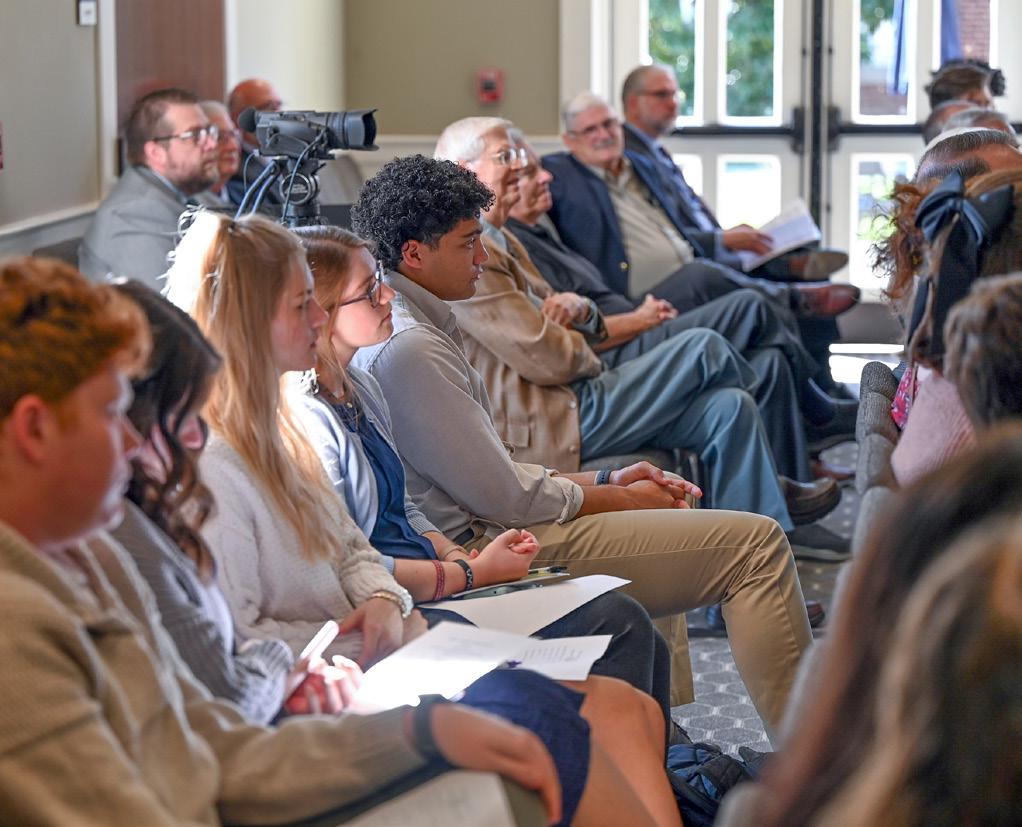
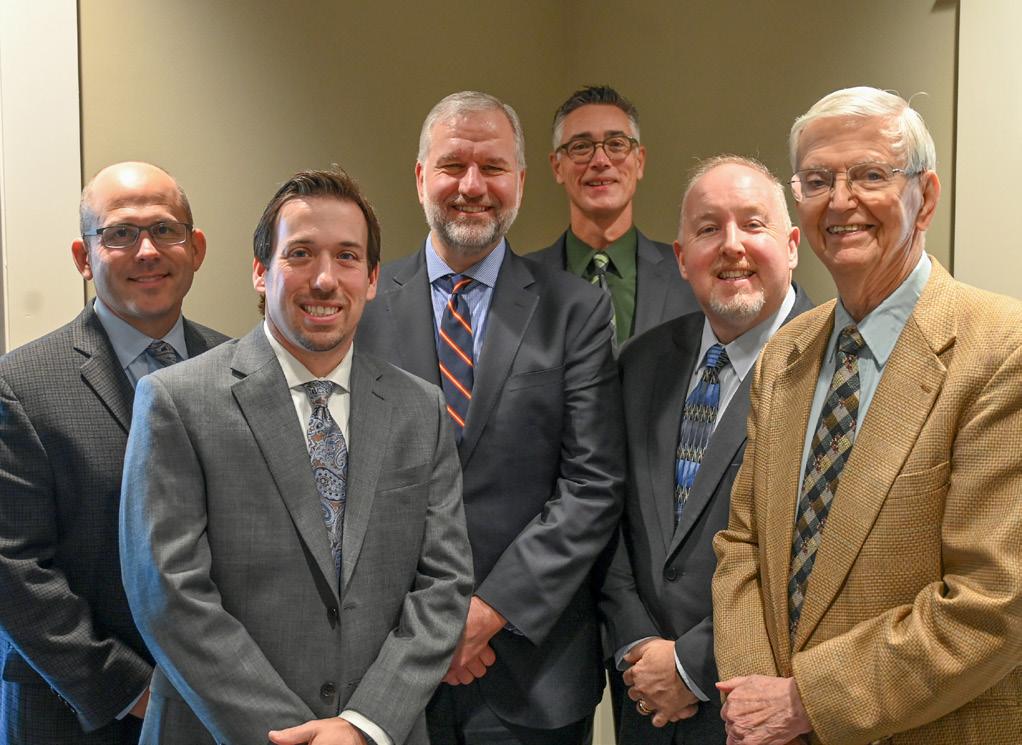
• Matthew McAffee, “A Little Lower Than Elohim? The Exaltation of Humanity in Psalm 8”
• Panel Discussion (with Rodney Holloman, Matthew McAffee, Jesse F. Owens, W. Jackson Watts), “The Genesis of Gender by Abigail Favale”
Registration numbers exceeded one hundred, in addition to nearly five hundred views on YouTube. Interested parties may access these recording through the Commission’s Facebook page.
The Commission also announced several changes to its makeup: Kevin Hester (chairman), Rodney Holloman (secretary), J. Matthew Pinson, Cory Thompson (program chairman), and W. Jackson Watts. The Commission is grateful for the twelve years Pinson served as chairman and the ten years Hester served as secretary. Additionally, the Commission announced Watts’s resignation as member (concluding in July 2025) and is thankful for his twelve years of service, which included eight years as program chairman.
Next year’s symposium will occur October 6–7, 2025, in Moore, Oklahoma, and will revolve around turning points in the National Association of Free Will Baptists to commemorate ninety years since its inception.
People may visit fwbtheology.com to read blog posts and purchase copies of Integrity, past symposia digests, and De Doctrina. Any questions may be directed toward fwbtheology@gmail.com.
Beginning in 2025, pre-registration for the NAFWB and Vertical Three Conference will only be available online. No mail-in forms will be accepted.

Tuesday, April 1, pre-registration will open for individuals and groups at nafwb.org/convention. Payment options include Visa, Discover, or MasterCard, and both debit and credit cards are accepted. Registration will close Friday, June 20, and no refunds will be issued after that date.
The information below includes the various options for registration for attendees.

National Board/Commission Member Ordained Minister Ordained Deacon
State Delegate (Authorization Required) Local Church Delegate (1 per church—Delegate Card Required)
Attendee (Non-voting) All Ages, Including Infant and Toddler
Preschool Ages 0-5, NOT Attending Preschool Worship – NO FEE
For each option listed below, the cost of registration is $40 pre-registered, $50 onsite.
Ages 3-5, Attending Preschool Worship Grades K-3 Grades 4-6
Grades 7-12 Adult Attendee (Adults attending any V3 competition or event)
*Any student or competitor attending any CTS competition or event MUST pay V3 conference fee in addition to CTS competition fees already paid.

WNAC Laughter & Latte (Ticket Price TBD) Monday, July 21, 8:30 PM
Illustionist Mark Brown – $12 ($20 Onsite/at the door) Tuesday, July 22, 9:00 PM | https://www.markbrownmc.com
Welch Alumni & Friends Gathering (Ticket Price TBD) Day/Time TBD
*Ticket prices will be updated online by April 1.
Follow the simple tips below for a smooth pre-registration process:
Follow the simple tips below for a smooth pre-registration process:
Register all members of the group in the same “transaction.” This allows the registration system to group all members together using the same confirmation number.
Register all members of the group in the same “transaction.” This allows the registration system to group all members together using the same confirmation number.
Use the church mailing address as the address for each person’s registration in the group. By default, when you “Add Another Person” to your registration, the mailing address stays the same. There is no need to change the address for each individual member. One address for the group is sufficient.
Use the church mailing address as the address for each person’s registration in the group. By default, when you “Add Another Person” to your registration, the mailing address stays the same. There is no need to change the address for each individual member. One address for the group is sufficient.
Use the group leader/contact person’s phone number as the phone number on each registration in the group. This gives us a point of contact for questions about the registration or to contact the group onsite at the convention if needed.
Use the group leader/contact person’s phone number as the phone number on each registration in the group. This gives us a point of contact for questions about the registration or to contact the group onsite at the convention if needed.
If your group is participating in CTS Ministry Expo events that begin Monday at 8:00 a.m., make sure you have pre-registered or plan to register on site Sunday before 7:00 p.m. Registration opens at 8:00 a.m. Monday.
If your group is participating in CTS Ministry Expo events that begin Monday at 8:00 a.m., make sure you have pre-registered or plan to register on site Sunday before 7:00 p.m. Registration opens at 8:00 a.m. Monday.
NAFWB Questions: 877-767-7659 | convention@nafwb.org V3 Information: 800-877-7030 | verticalthree.com
NAFWB Questions: 877-767-7659 | convention@nafwb.org V3 Information: 800-877-7030 | verticalthree.com










*







1. Prepare personal information. You will need the following:
+ Name(s), address, city, state, zip
+ Phone/email
+ Credit card information
+ Special requests: accessibility, rollaway, or crib
2. Make reservations.
+ Online reservations open Monday, May 12, 9:00 a.m. CDT. Links to make reservations will be available at nafwb.org.
+ The group code (for convention
Kansas City Marriott Downtown
200 W 12th Street
Kansas City, MO 64105
816-421-6800
Room Rate: $174
Self-Parking: $16/Night
Valet Parking: $45/Night
Crowne Plaza Kansas City Downtown 1301 Wyandotte Street
Kansas City, MO 64105
816-474-6664
Room Rate: $169/Night
Self-Parking: $20/Night
Hotel Phillips Kansas City
106 W 12th Street
Kansas City, MO 64105
816-221-7000
Room Rate: $169/Night
Valet Parking: $42/Night
* Room Rates do not include state, local, and city taxes.

rate) will be built into each reservation link.
+ Contact the hotel directly for changes to reservations or issues with a reservation. Note: NAFWB is not responsible for housing issues.
3. Important things to remember:
+ Hotels have been told not to accept reservations before the opening day.
+ Rates do not include state, local, and city taxes.
NOTE: The first night's room and tax will be charged for canceled reservations. While the charge is non-refundable, reservations are transferable. Available rooms may be posted at nafwb.org for transfer.
NOTE: Convention policy supercedes the hotel policy.
Groups making eight or more reservations can contact Ryan Lewis before April 1 for more information: ryan@nafwb.org or 877-767-7659.
Reservation cut-off date: Friday, June 20, 2025 Visit nafwb.org/convention for more information.
for states with at least 17 Free Will Baptist Churches
BY EDDIE MOODY
“Children…well favoured, and skillful in all wisdom, and cunning in knowledge, and understanding science, and such as had ability in them to stand in the king’s palace” (Daniel 1:4a).
This spring, 3.85 million students are projected to graduate from high school in the United States. This is likely the highest number of graduates in U.S. history. However, in 2026, the number is likely to drop and continue to drop to 3.4 million by 2041. This is referred to as The Great Cliff. These projections are based on birth rates, which fell in 2007 during the Great Recession and never recovered, dropping annually to a low of 3.6 million births.
Not everyone is in decline. Although 38 states are declining, 12 states will see an increase in high school graduates through 2041. Many of these states are where Free Will Baptists are strongest (see chart at right). Further, every racial or ethnic group is not in decline. This year, 944,000 Hispanic students will graduate. That rate is expected to increase 16% or 1.1 million students by 2041. Additionally, the numbers of those from Hispanic descent is exploding among Free Will Baptists.
Results of the Cooperative Election Survey indicate 28% of people who identified as Free Will Baptist are the parent or guardian of a child under 18. Only two other denominations report a higher percentage.1 Of course, if you’ve attended a National Convention, you already know Free Will Baptists have children. The Great Cliff indicates our nation needs them.
Needs must be met. Having fewer graduates translates into having fewer young workers to enter the workforce. It also impacts college attendance. Currently, 62% of high school graduates pursue post-secondary education. In 2031, 72% of all jobs are projected to require post-secondary education training or credentials, and 42% will require a degree. Improved efficiency is required in health, education, and STEM disciplines (science, technology, engineering, and math). Current labor market projections indicate future jobs will require more degree holders than the nation is on pace to produce.2
What an opportunity for Free Will Baptists! This generation has an opportunity to reach our nation by following in the footsteps of heroes like Daniel, Hananiah, Mishael, and Azariah. When I read Daniel (especially 1:4), I sense those
young men excelled in the STEM disciplines. They had opportunity to minister in Babylon because they could do things others could not.
Some of the least churched places in America are being hit hardest by The Great Cliff. Incidentally, these areas also have the greatest need for workers with post-secondary training. As many decry The Great Cliff, may we see it as an opportunity to take the church to people who would not otherwise be interested. God is at work and has prepared us for this moment.
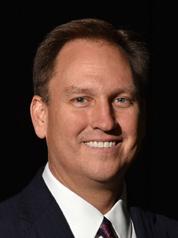
Eddie Moody
Executive Director, National
Association of Free Will Baptists
1 Burge, R. (2024). Which Denominations Are the Grayest? (The Youngest Will Surprise You) https://churchanswers.com/blog/ which-denominations-are-the-grayest-the-youngest-will-surprise-you/
2 Anthony P. Carnevale, Nicole Smith, Martin Van Der Werf, and Michael C. Quinn. After Everything: Projections of Jobs, Education, and Training Requirements through 2031. Washington, DC: Georgetown University Center on Education and the Workforce, 2023. cew.georgetown.edu/ Projections2031.
No one wants to think about the worst, but even young families should be prepared for the unexpected. Since 2013, Free Will Baptist Foundation & Cornerstone Estate Planning have helped thousands of families prepare for unexpected death with an estate plan. Hopefully, your family never needs it, but it's better to be prepared in case you do!
No one wants to think about the worst, but even young families should be prepared for the unexpected. Since 2013, Free Will Baptist Foundation & Cornerstone Estate Planning have helped thousands of families prepare for unexpected death with an estate plan. Hopefully, your family never needs it, but it's better to be prepared in case you do!
foundation@nafwb.org | 877-336-7575
foundation@nafwb.org | 877-336-7575
www.fwbgifts.com
www.fwbgifts.com




